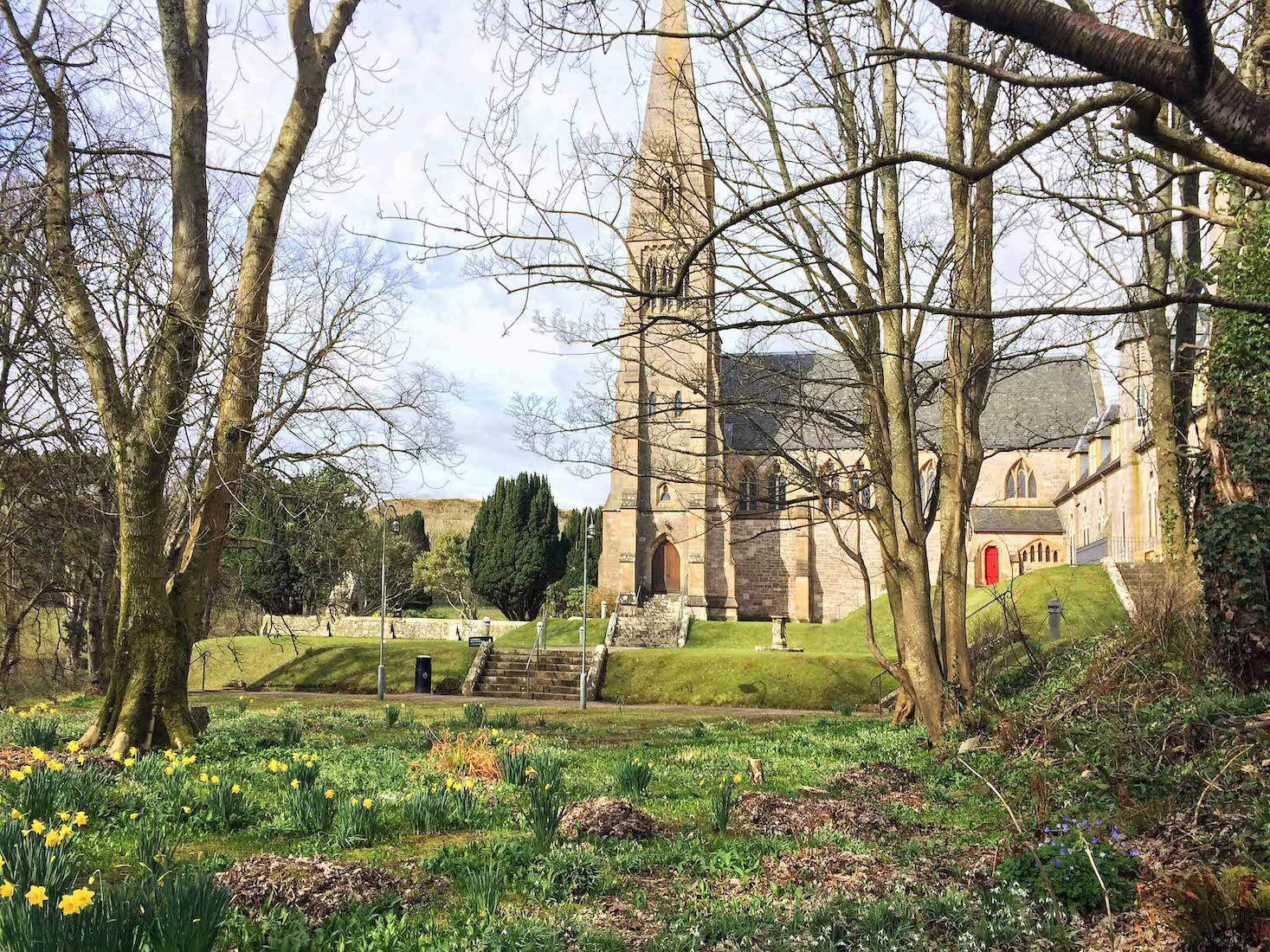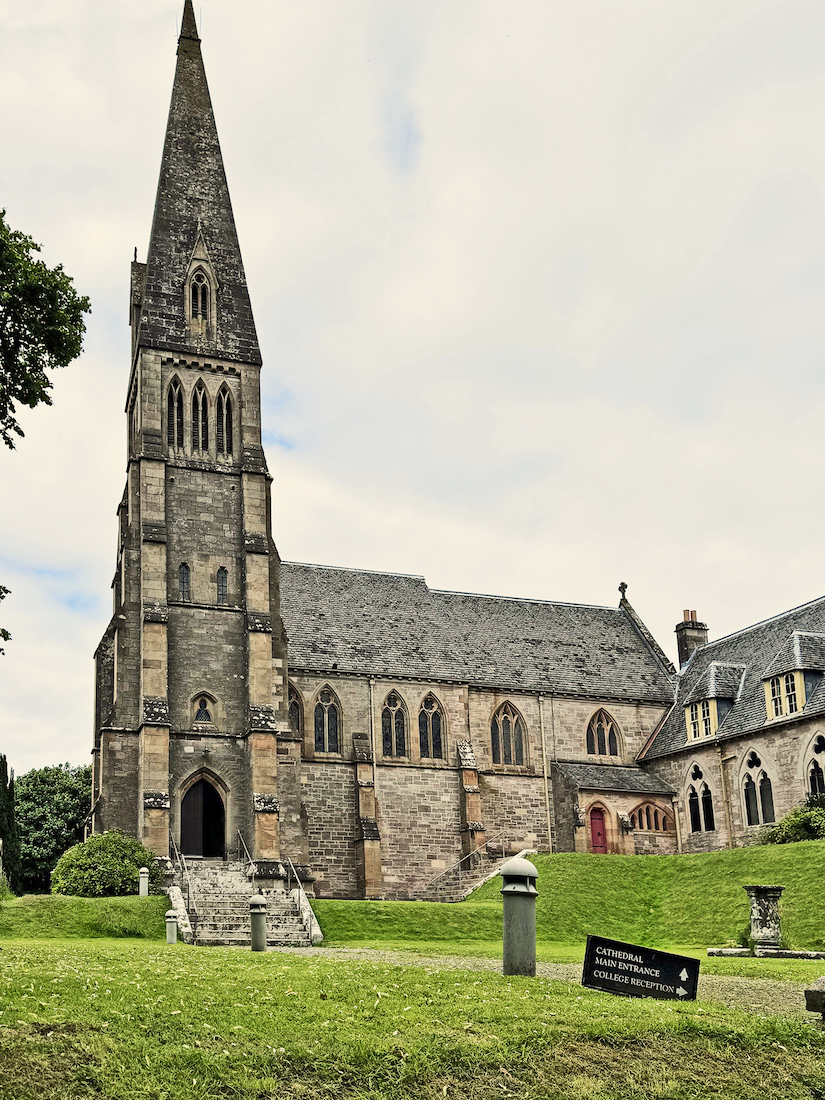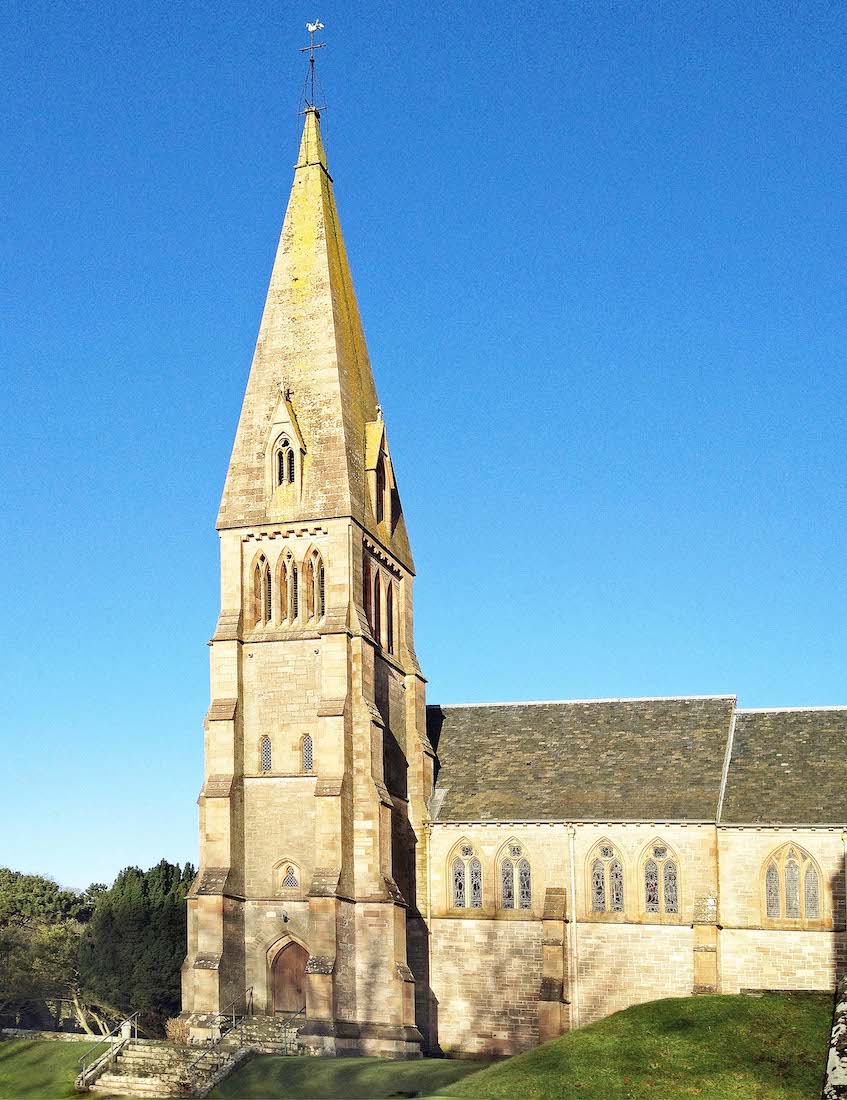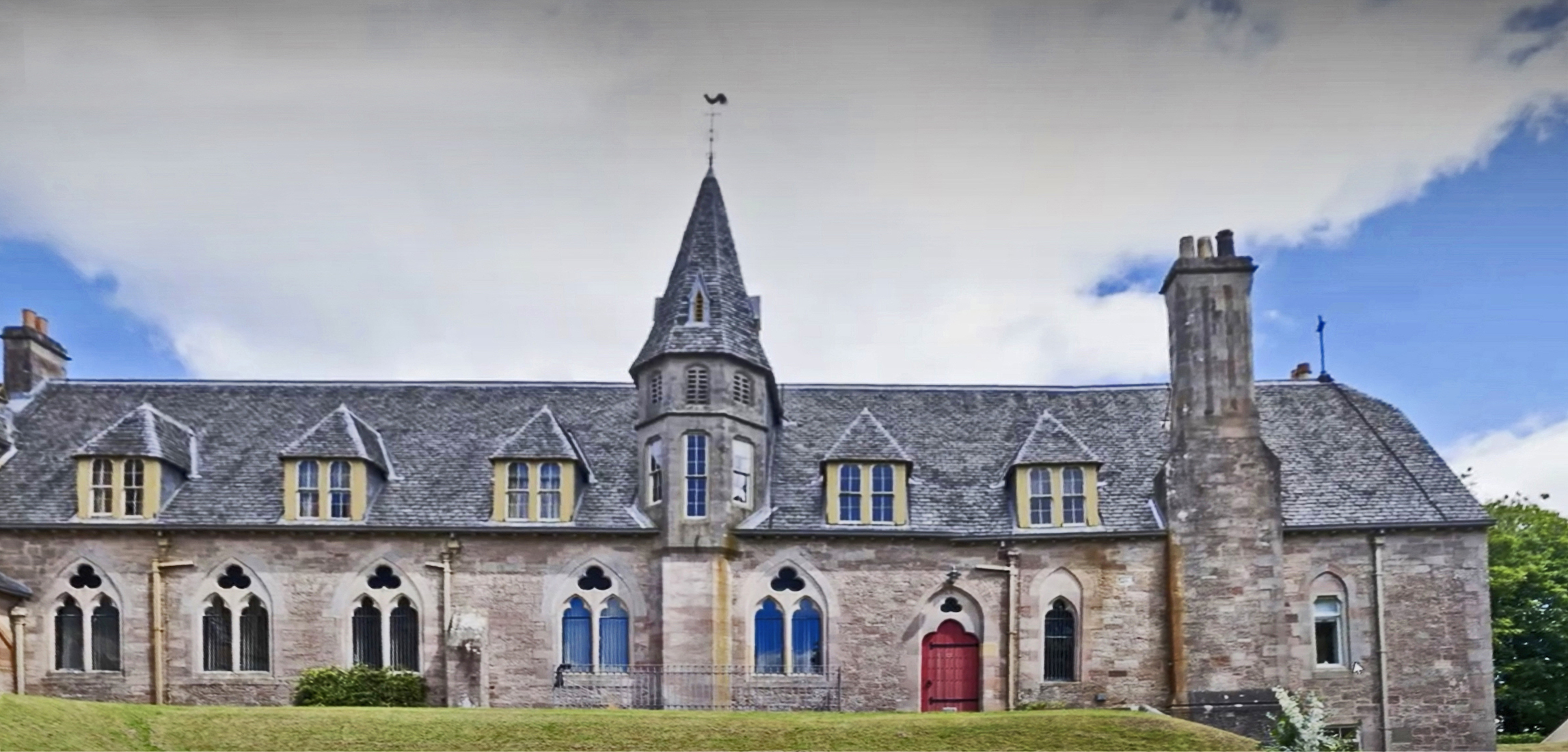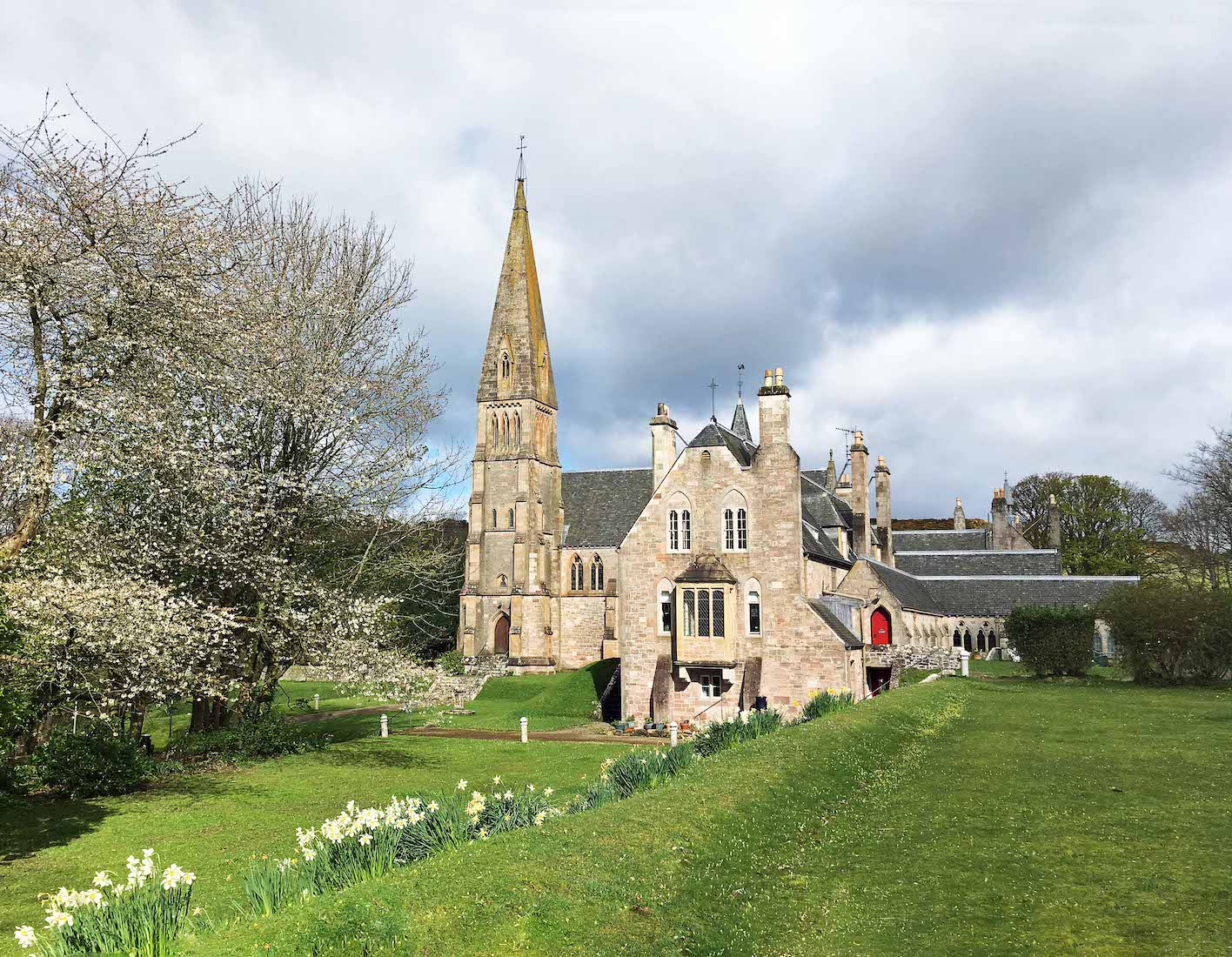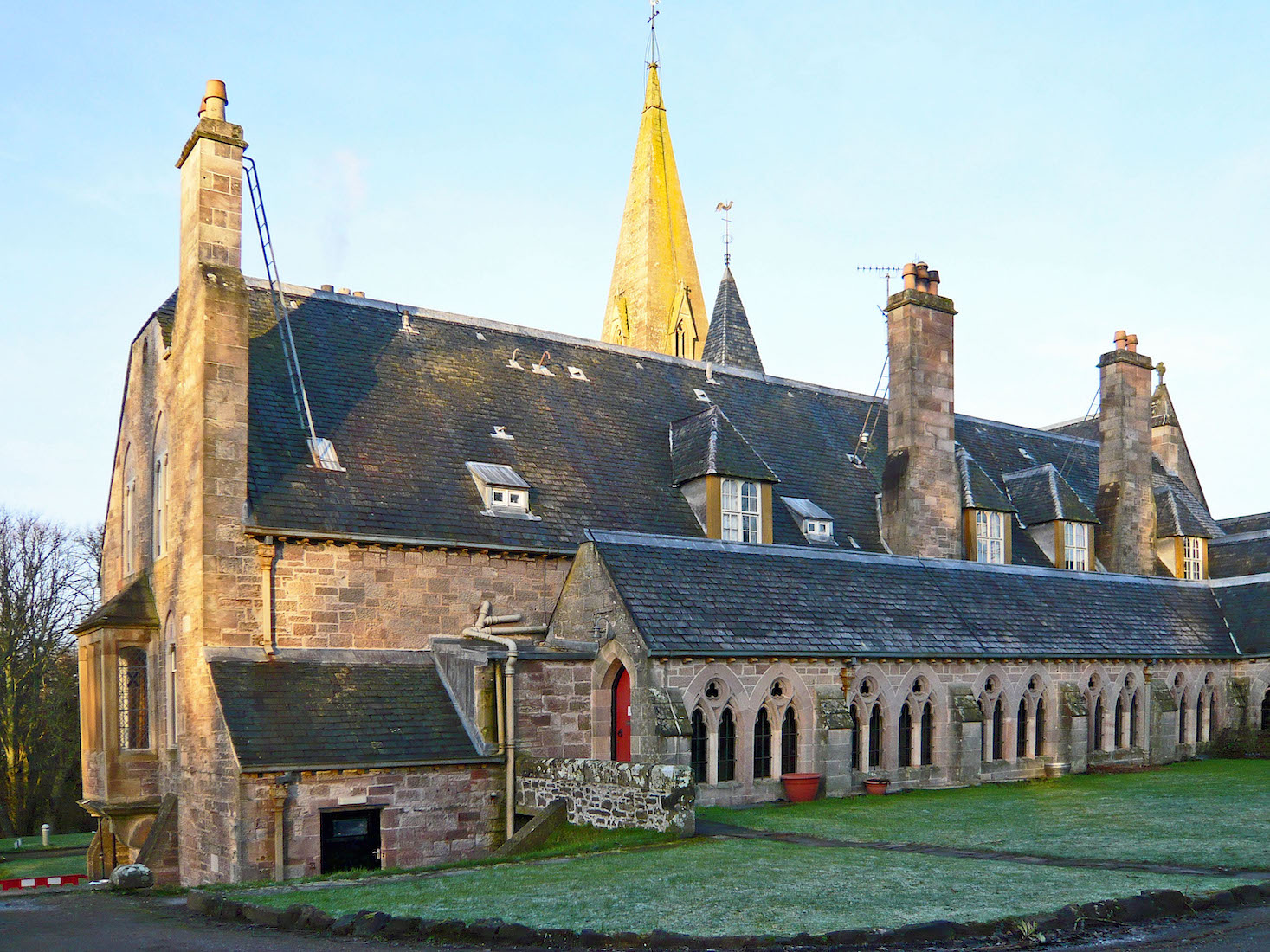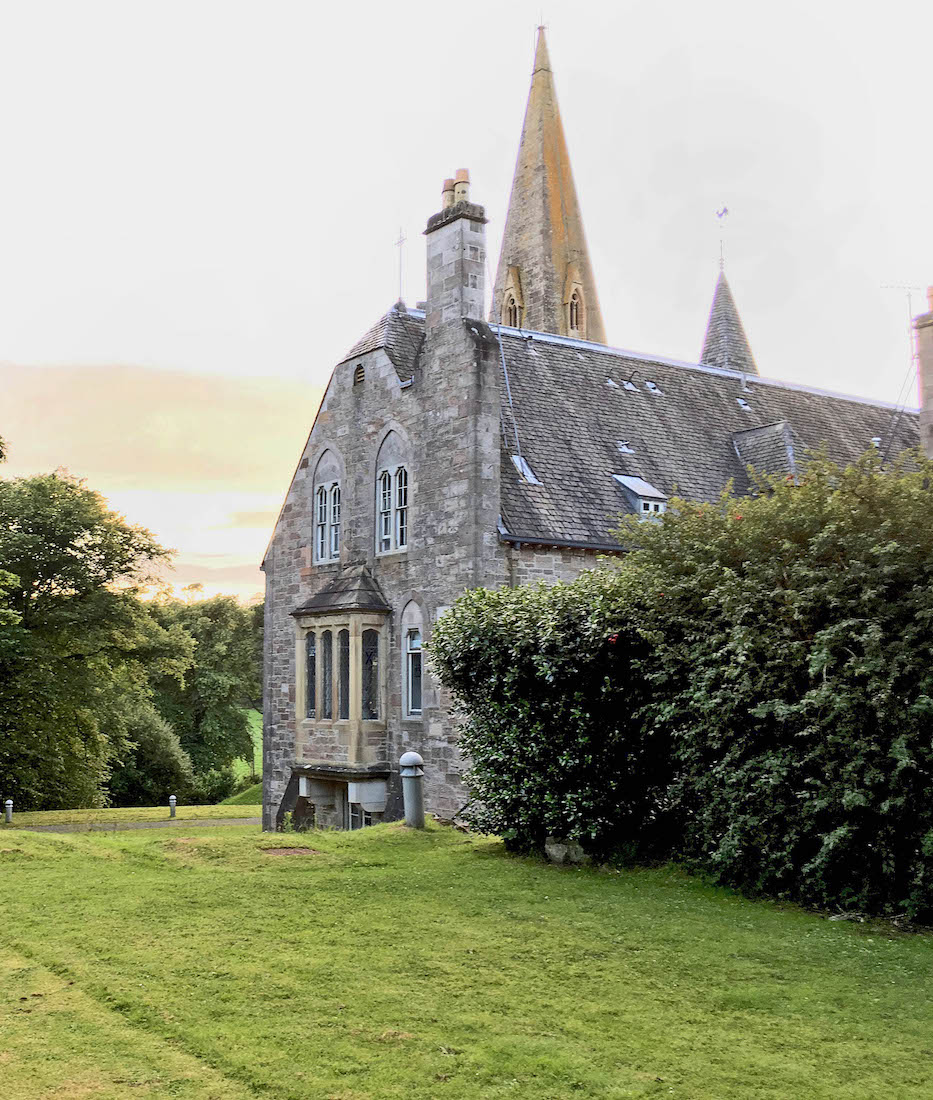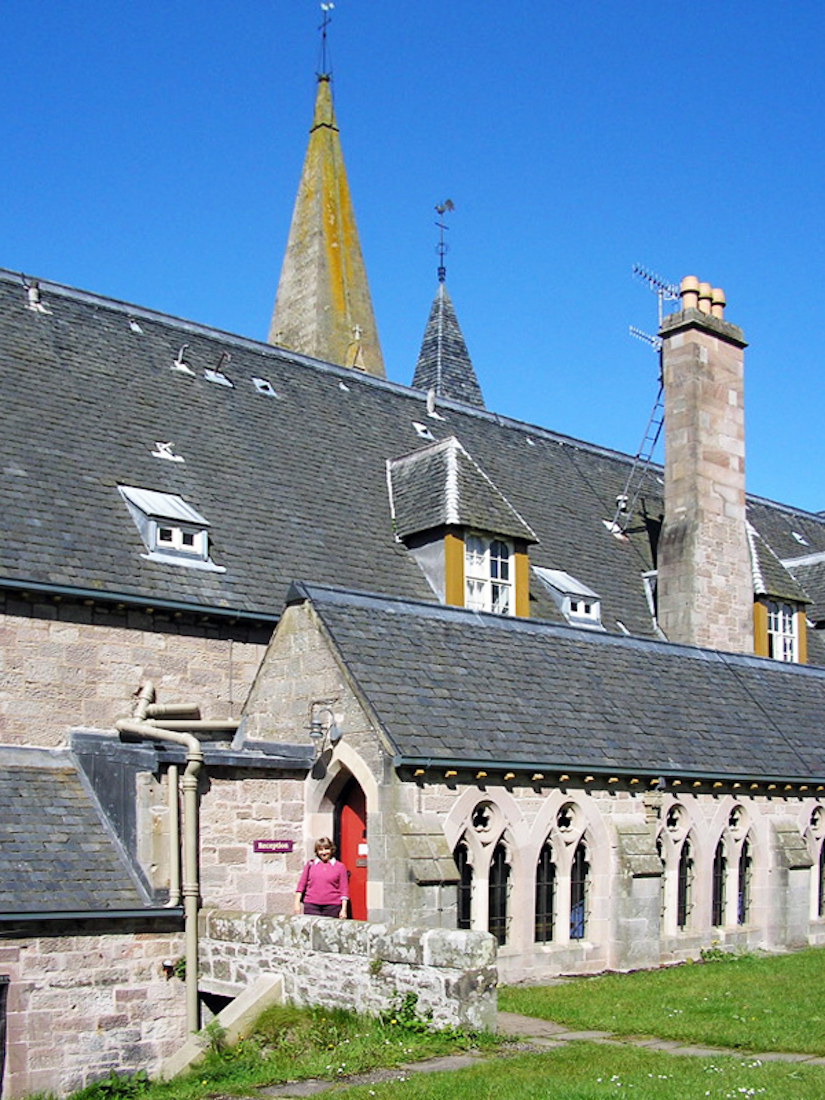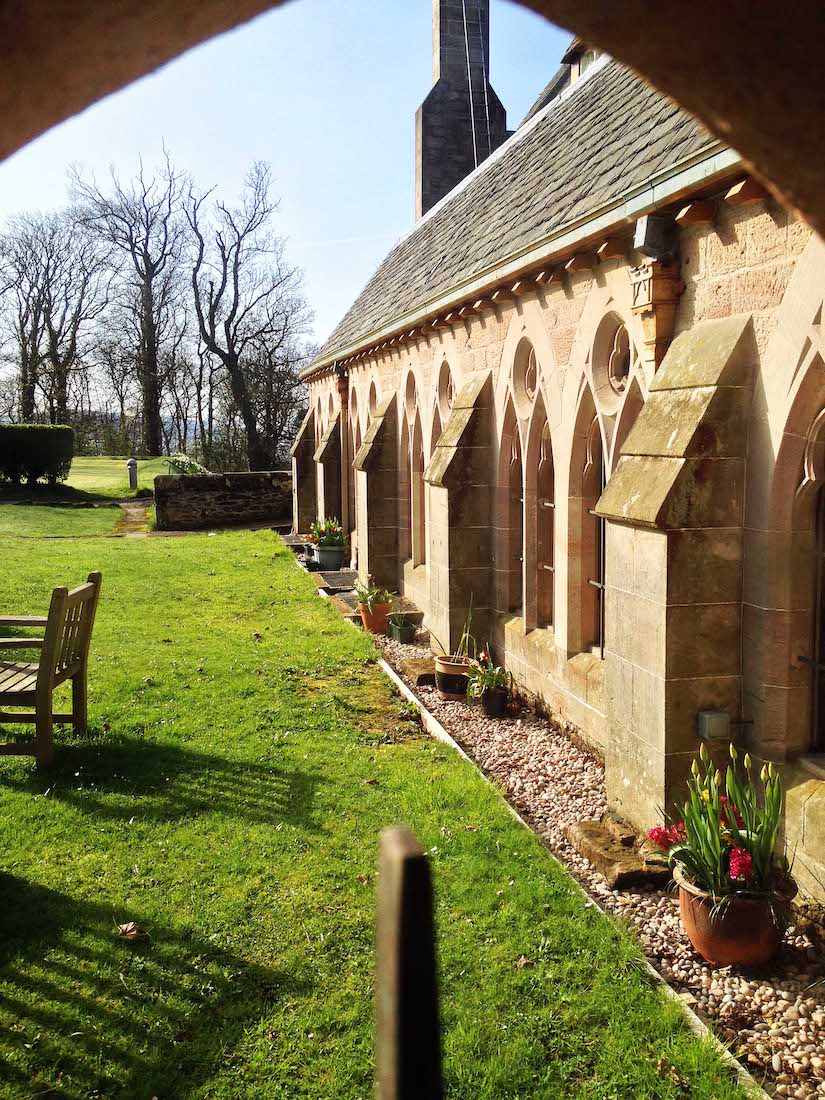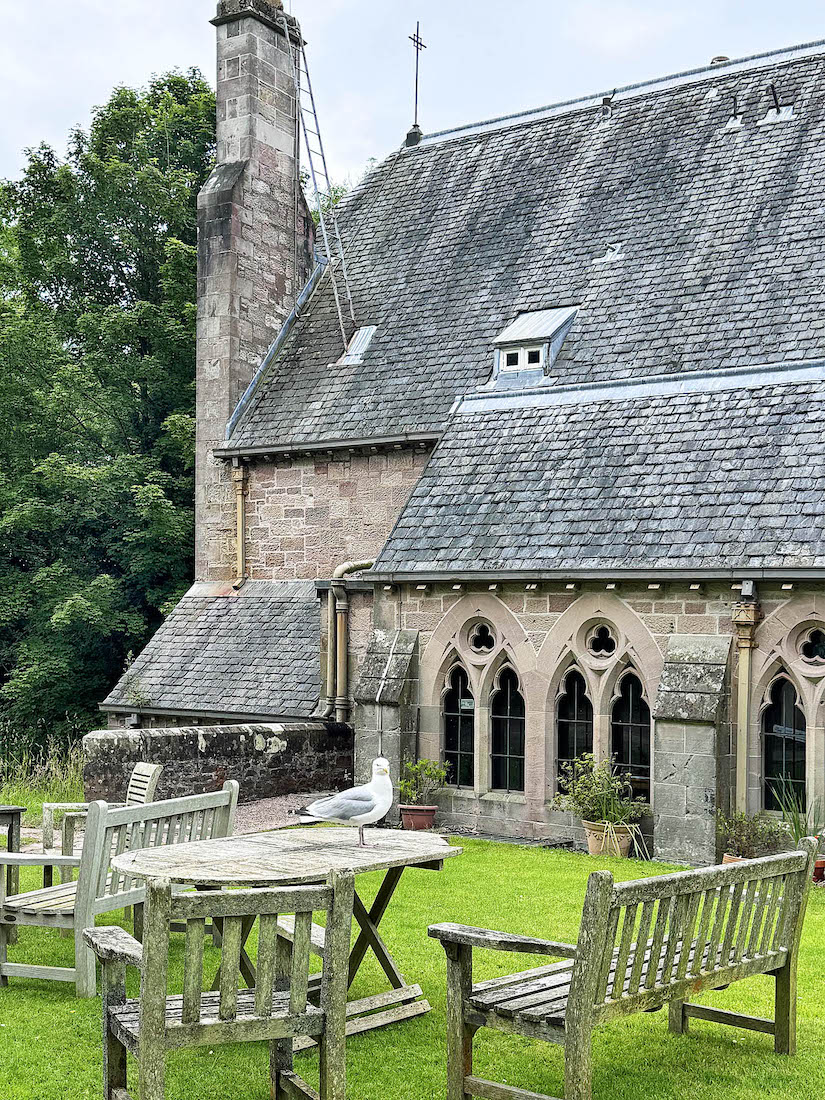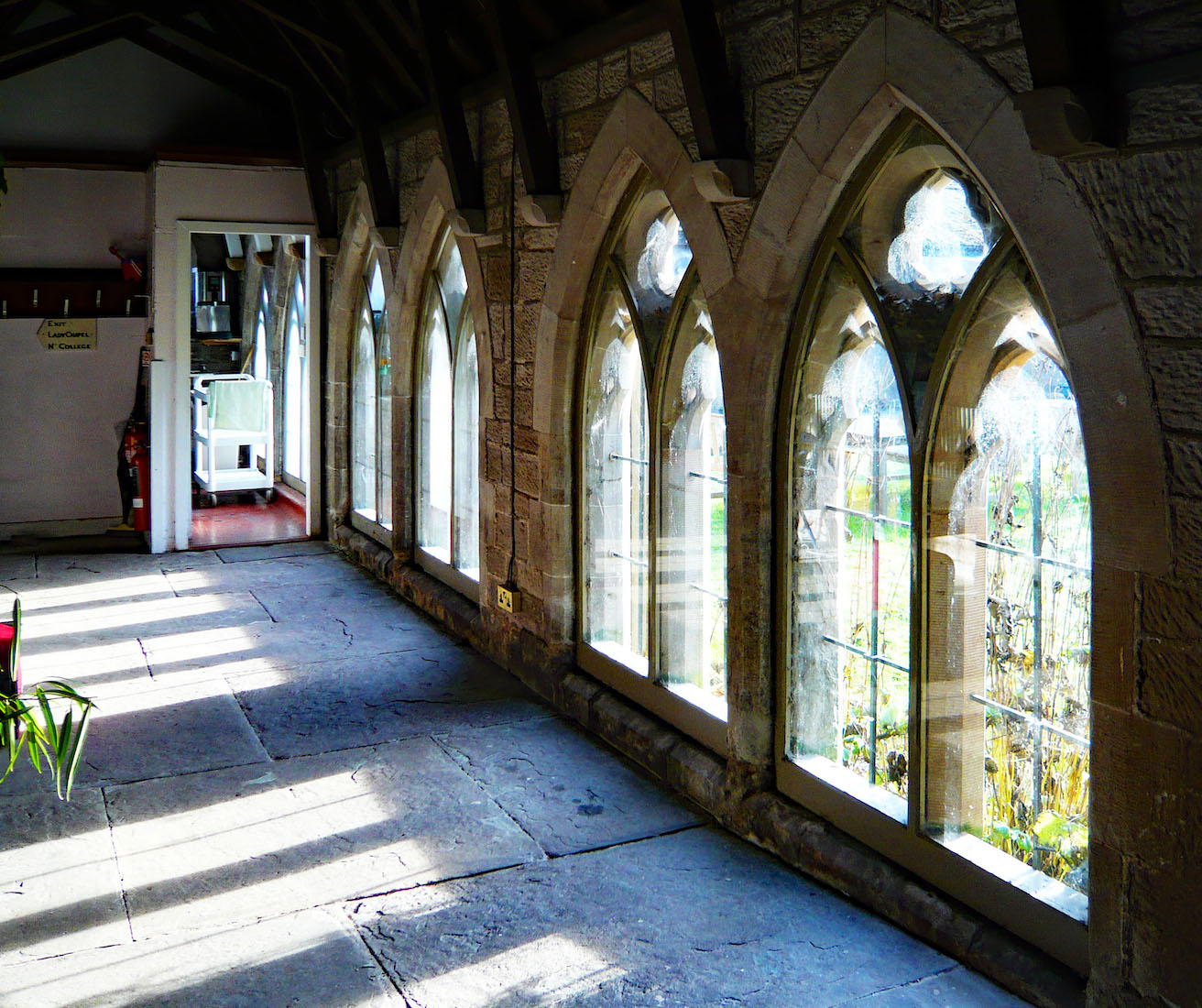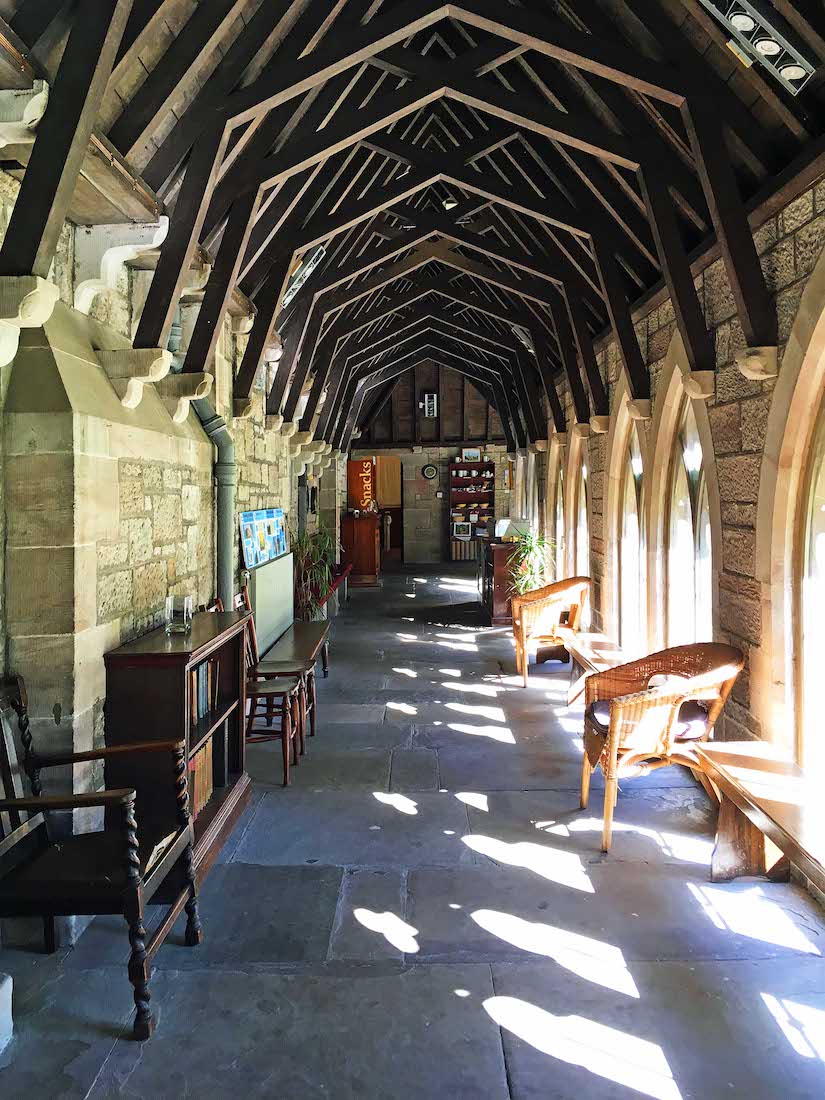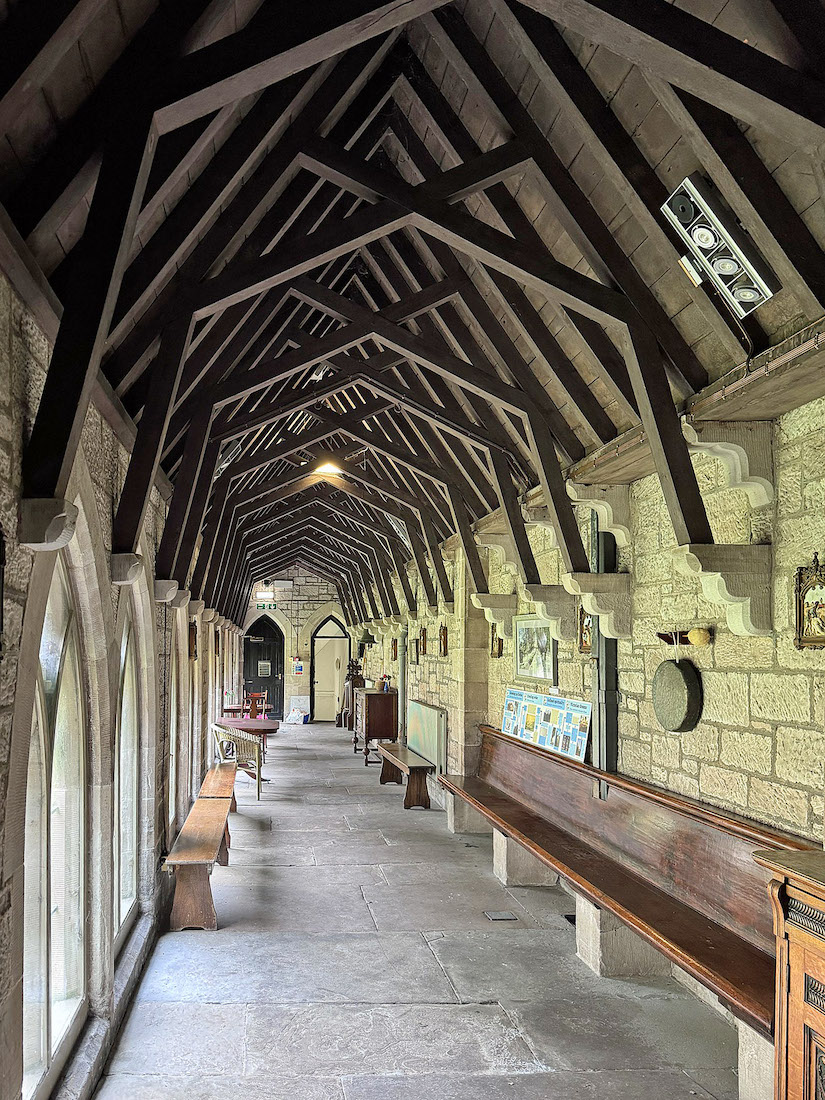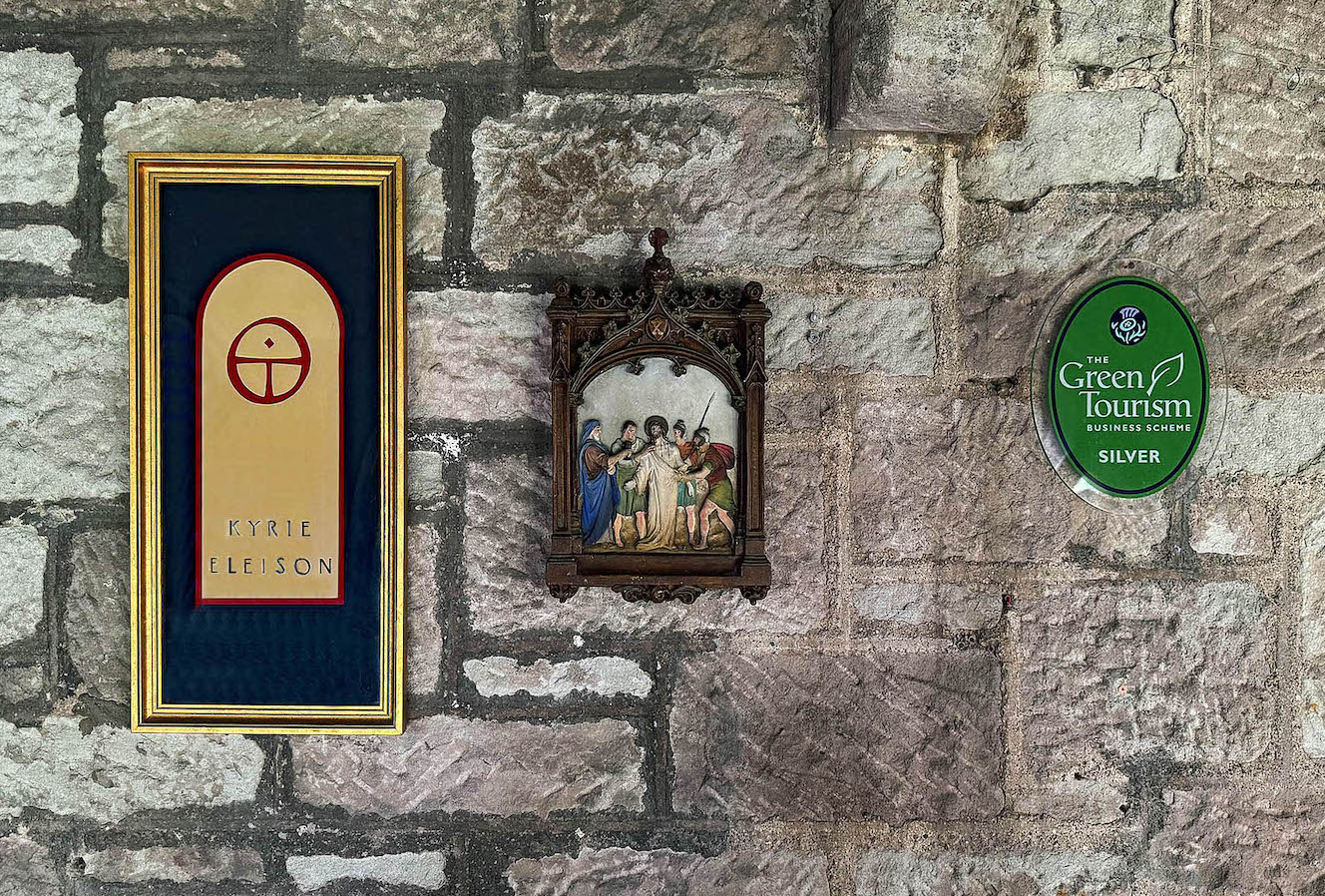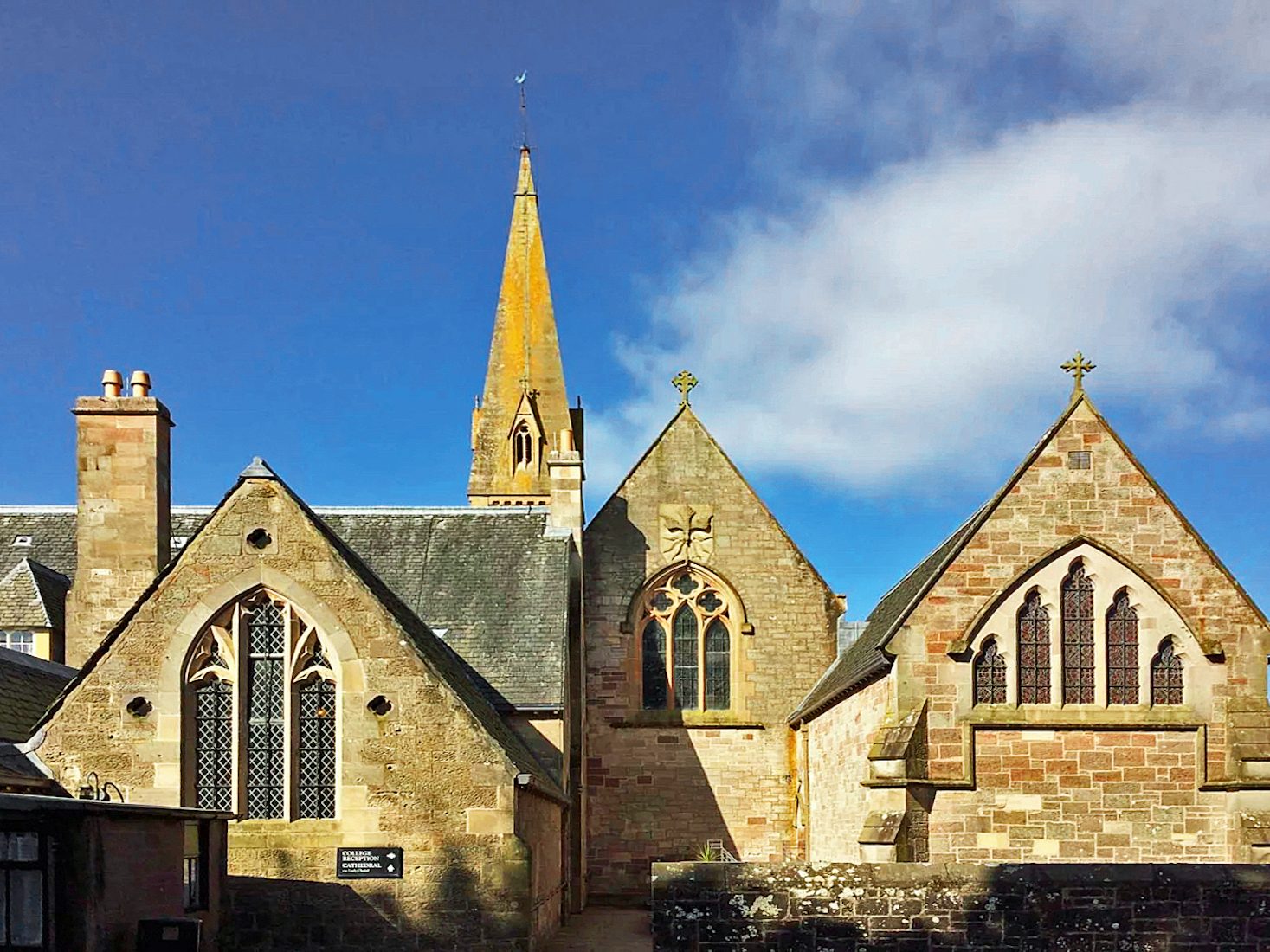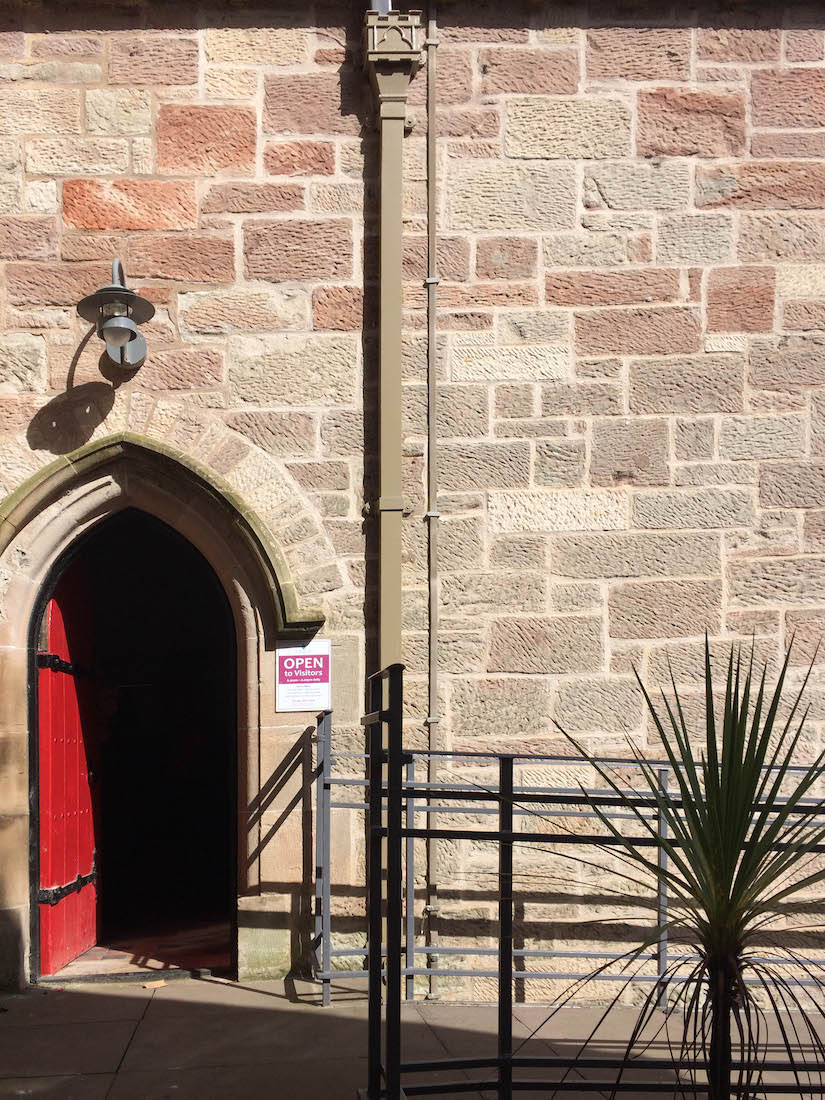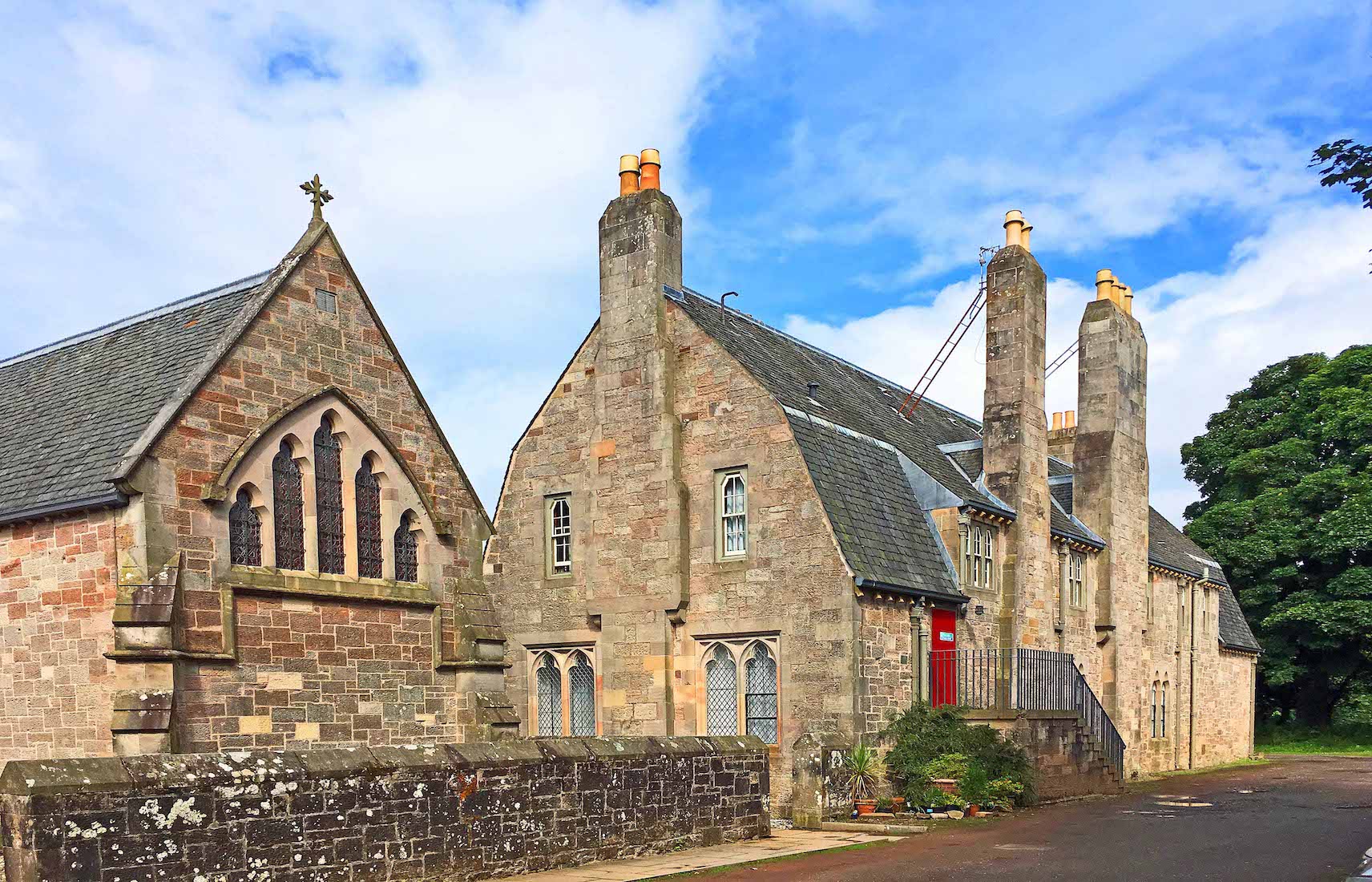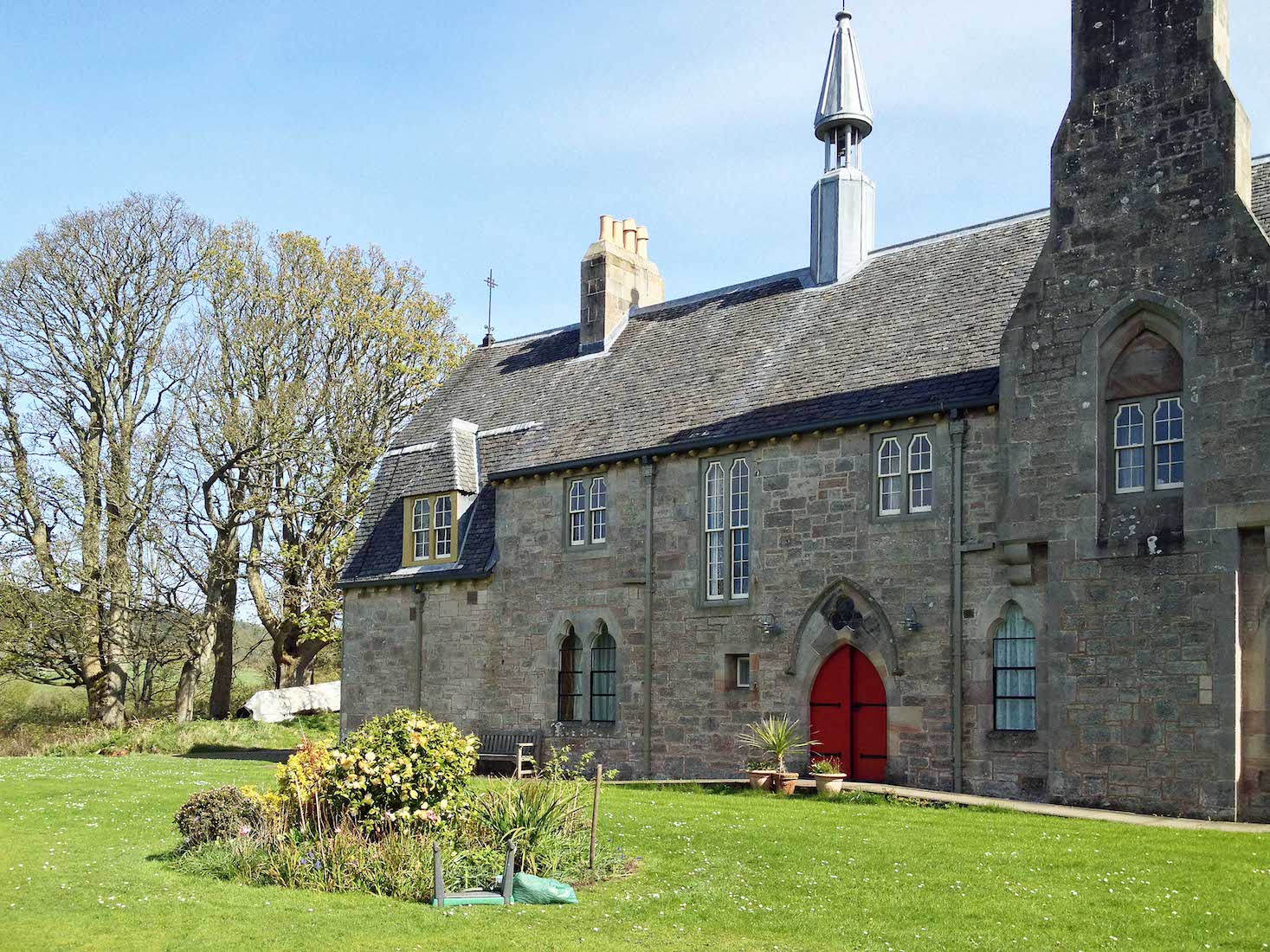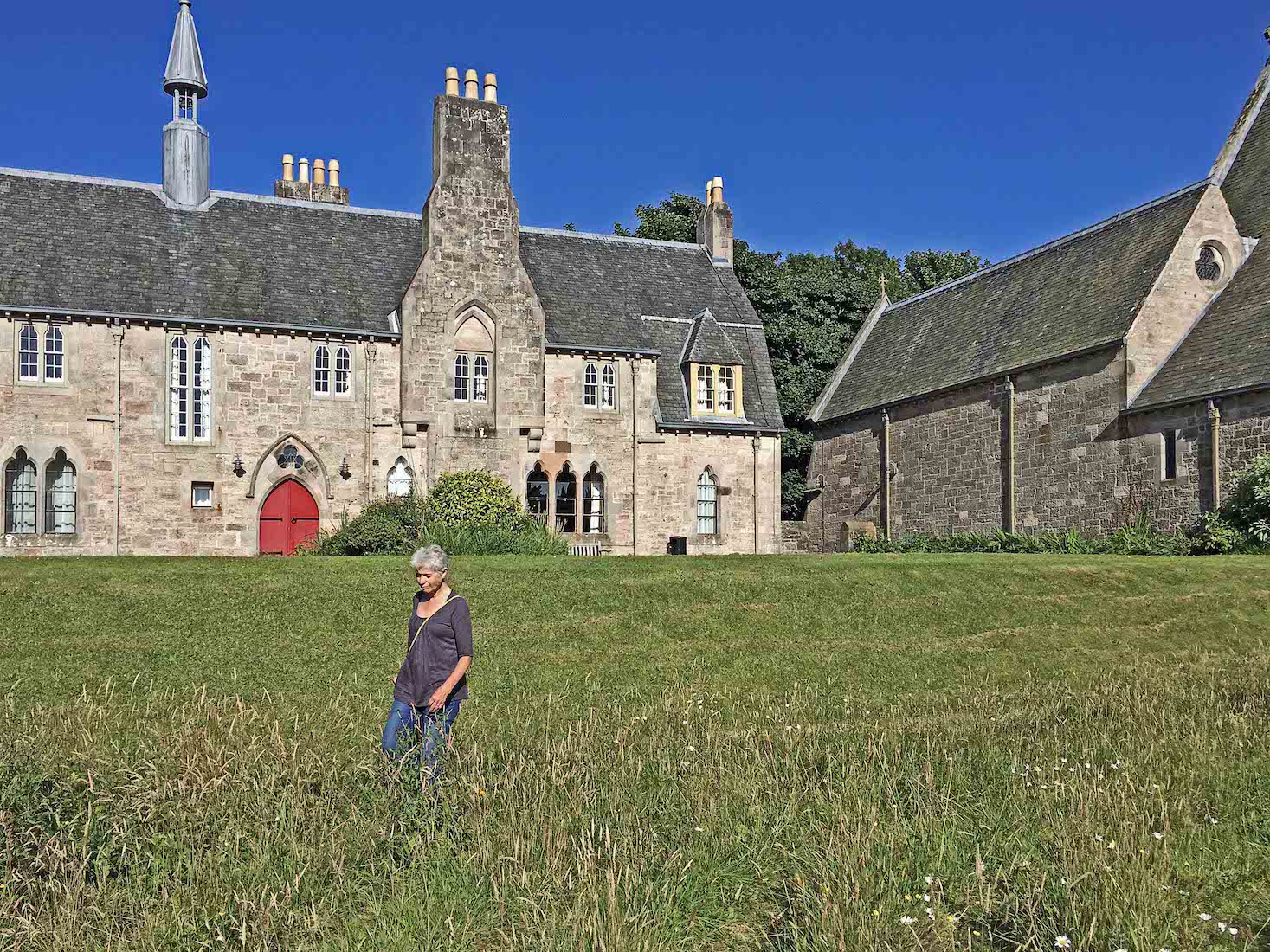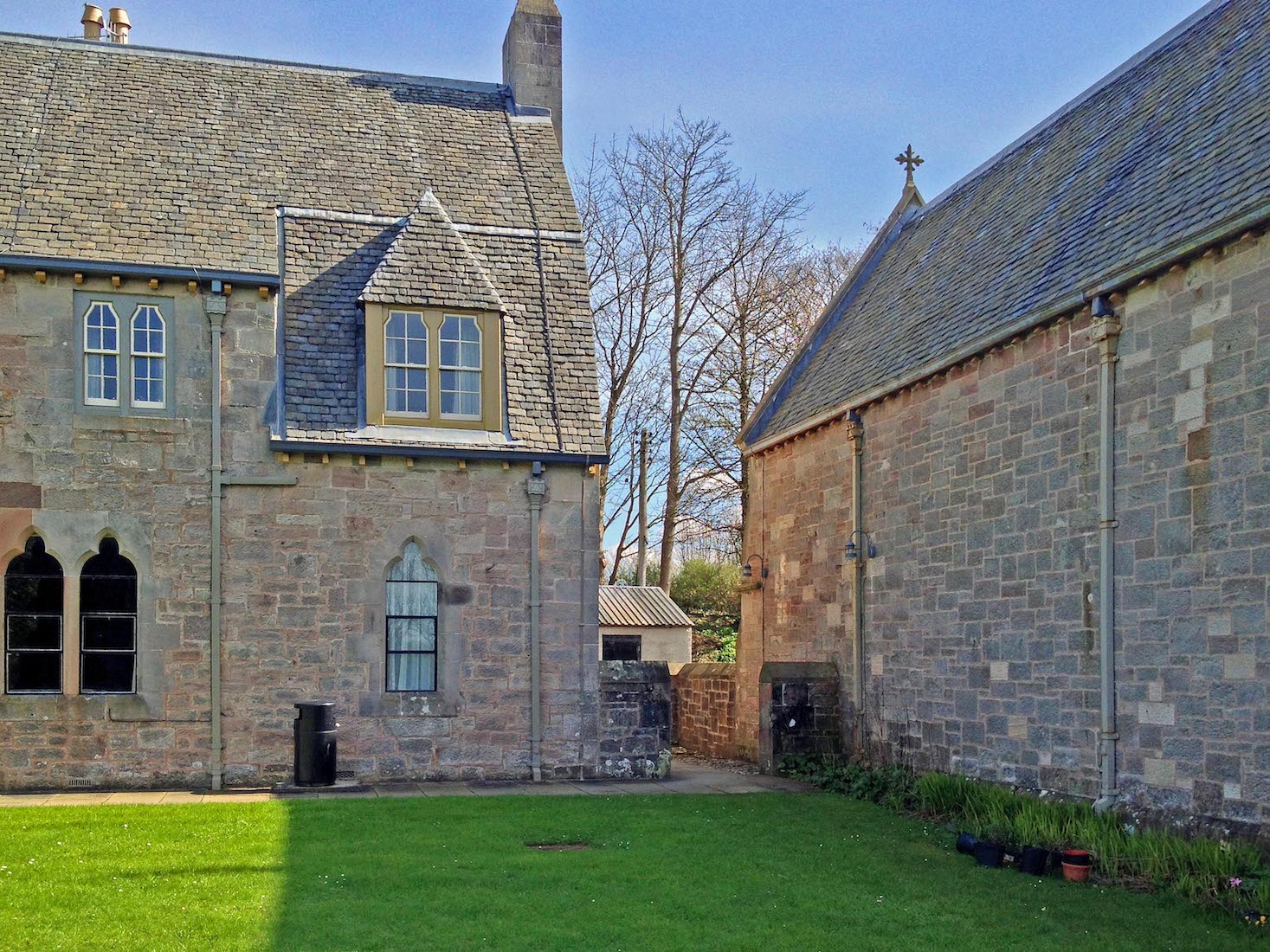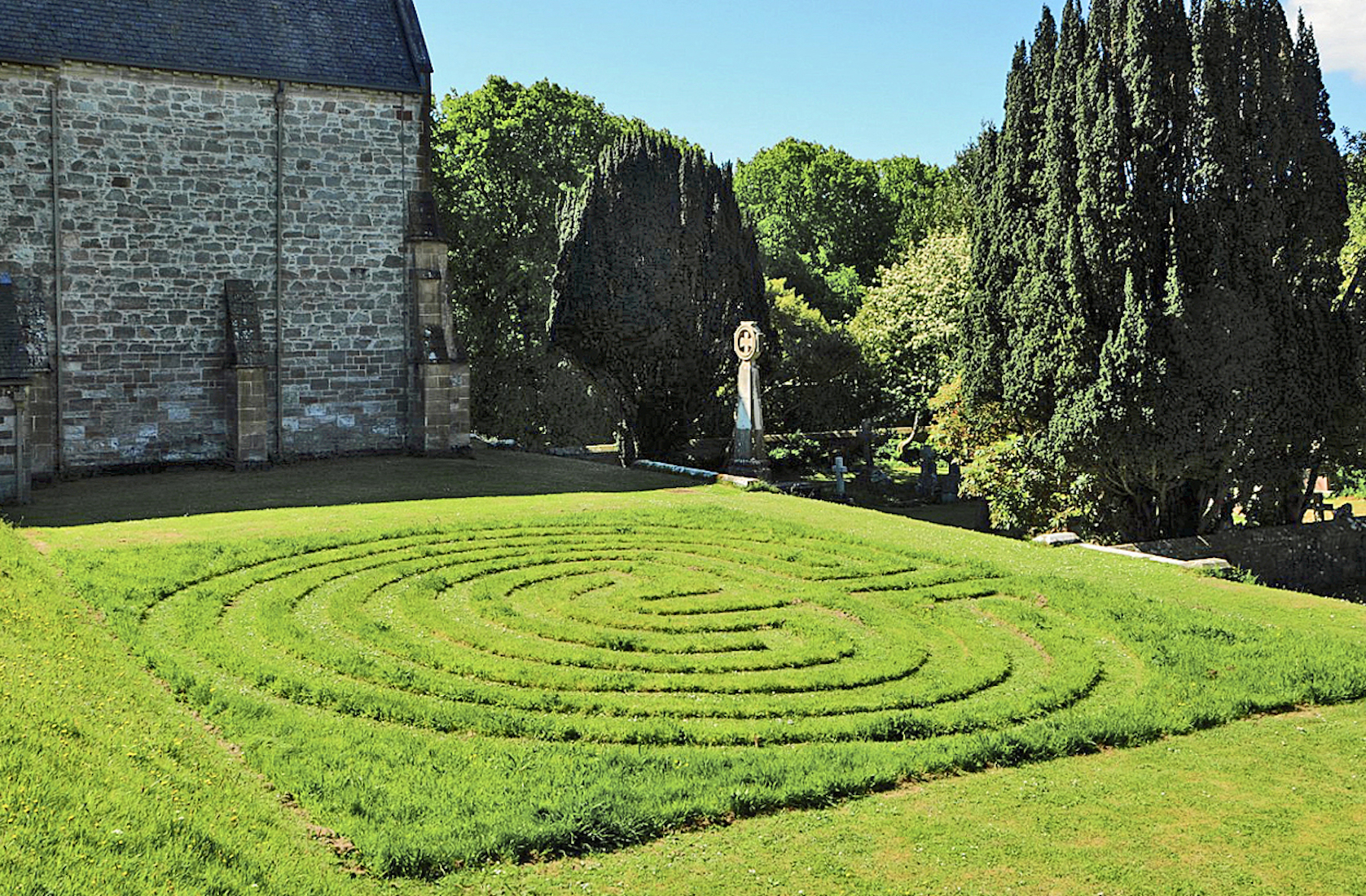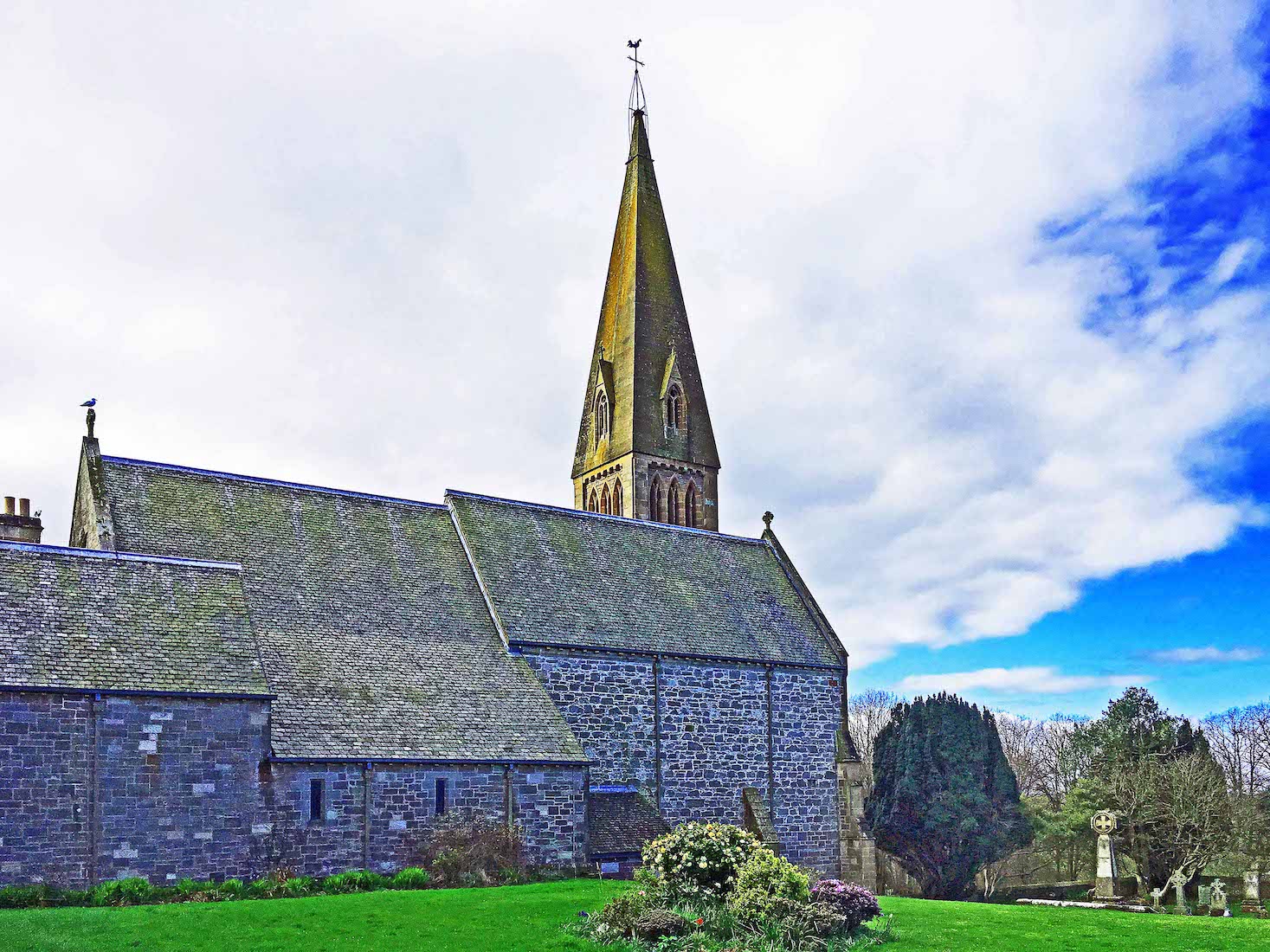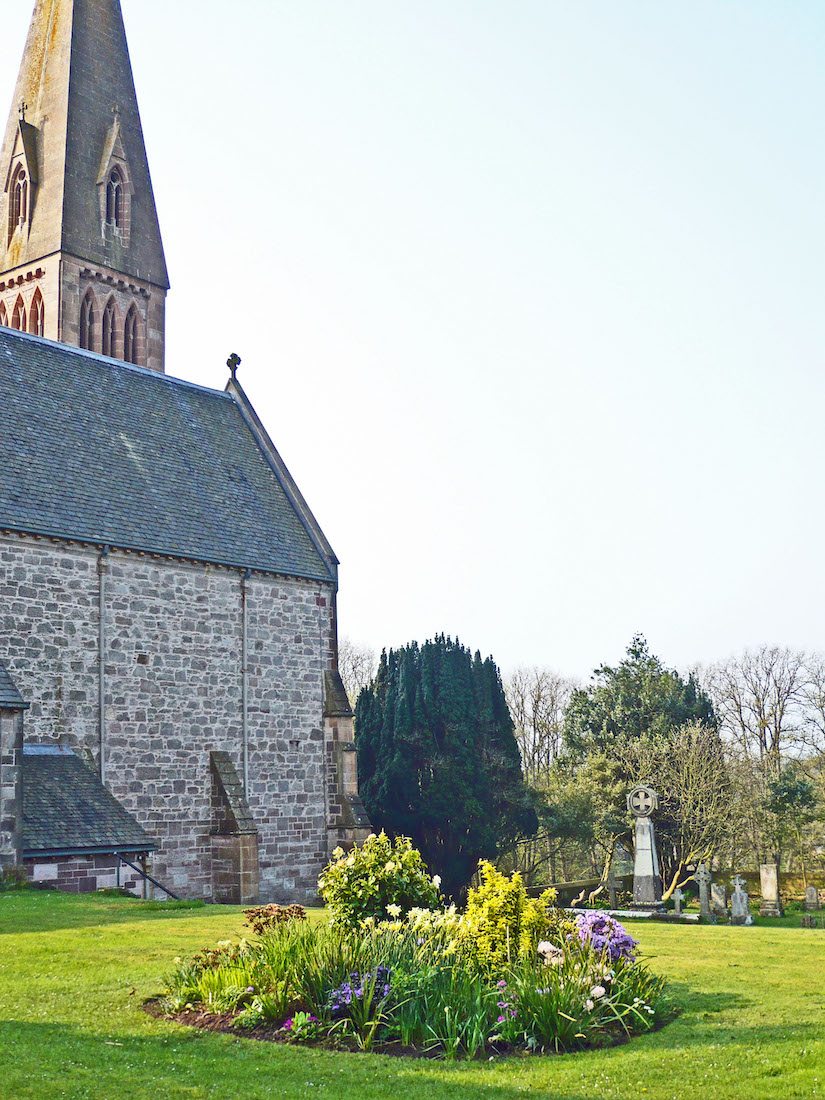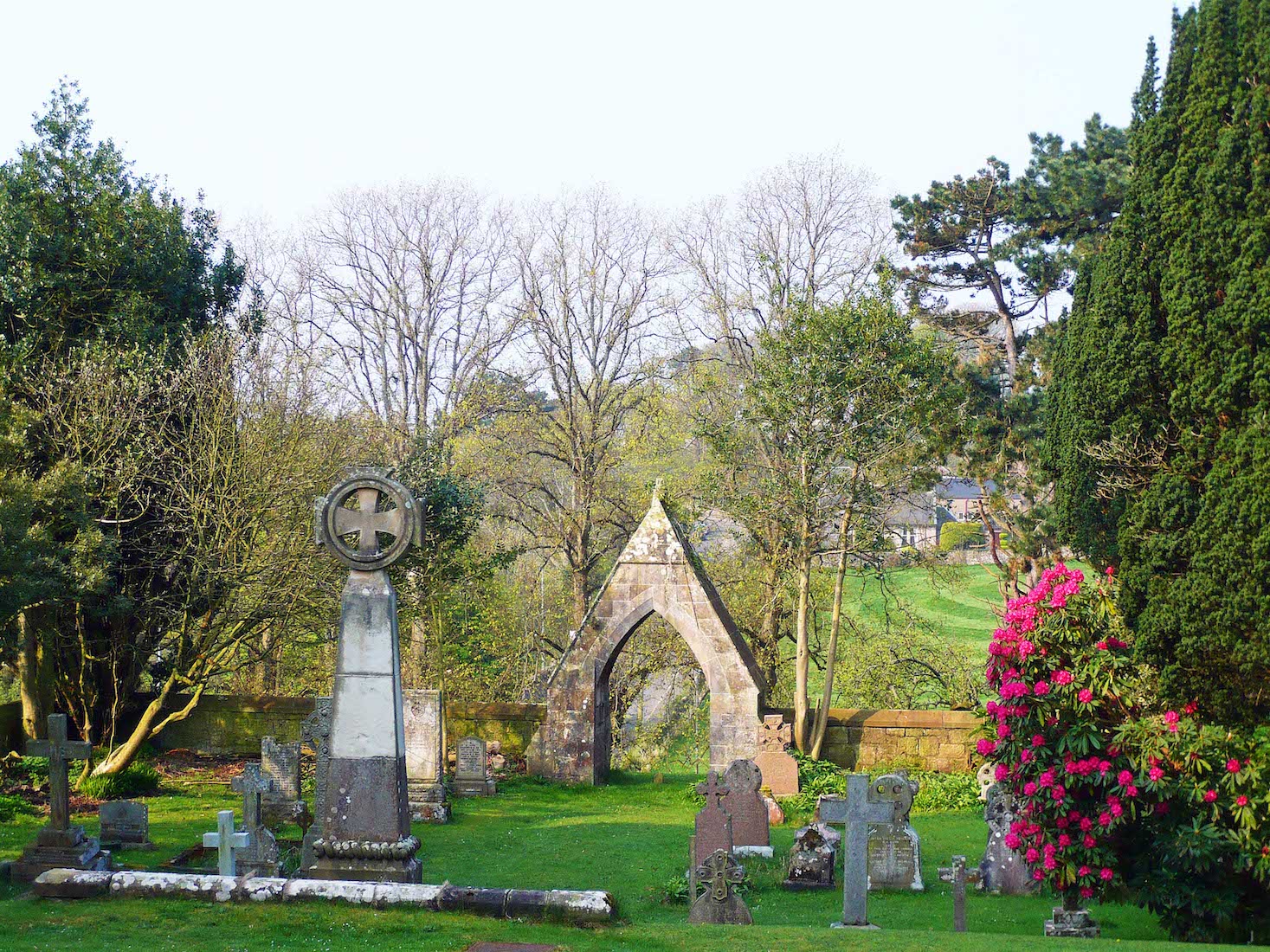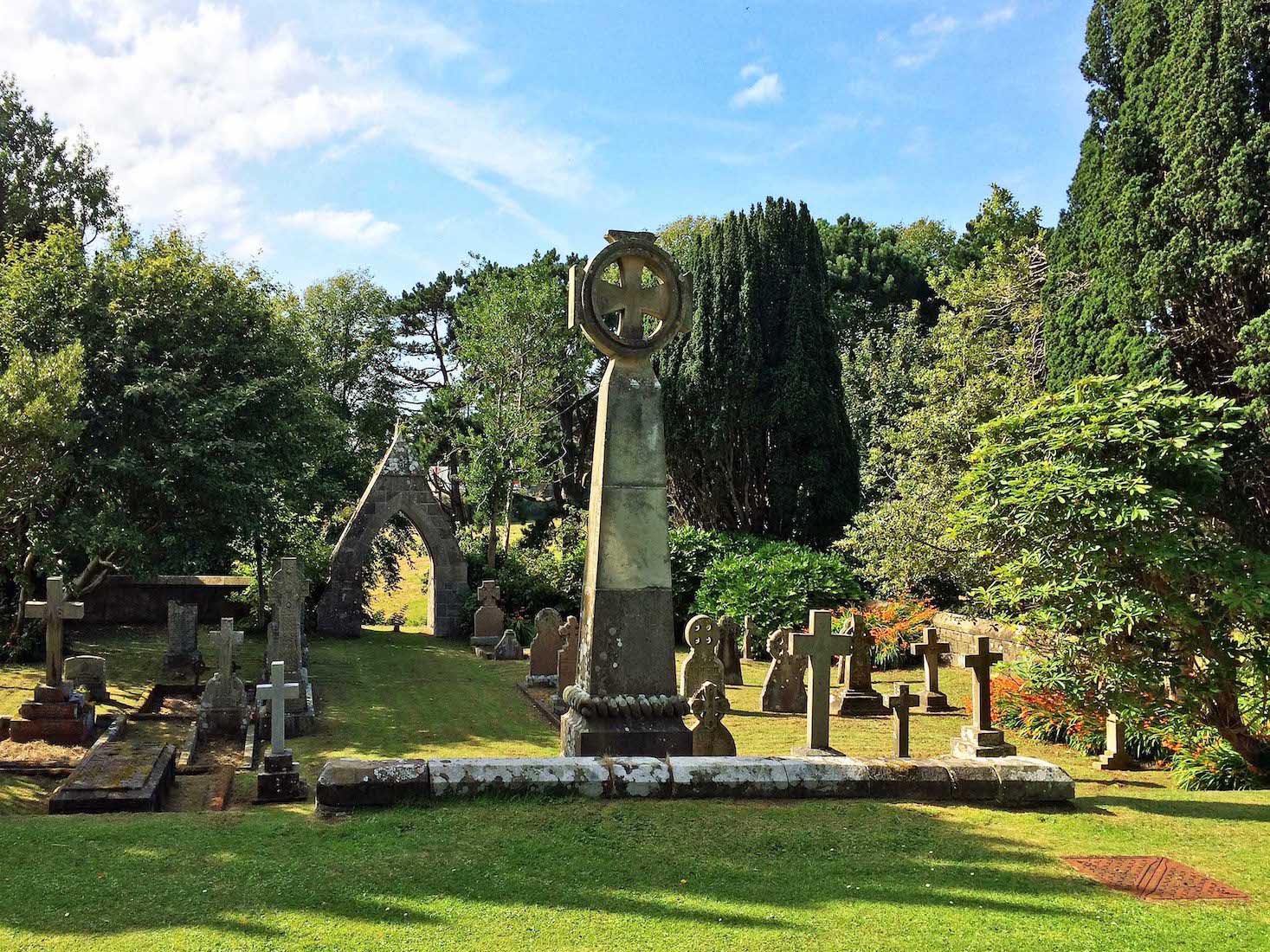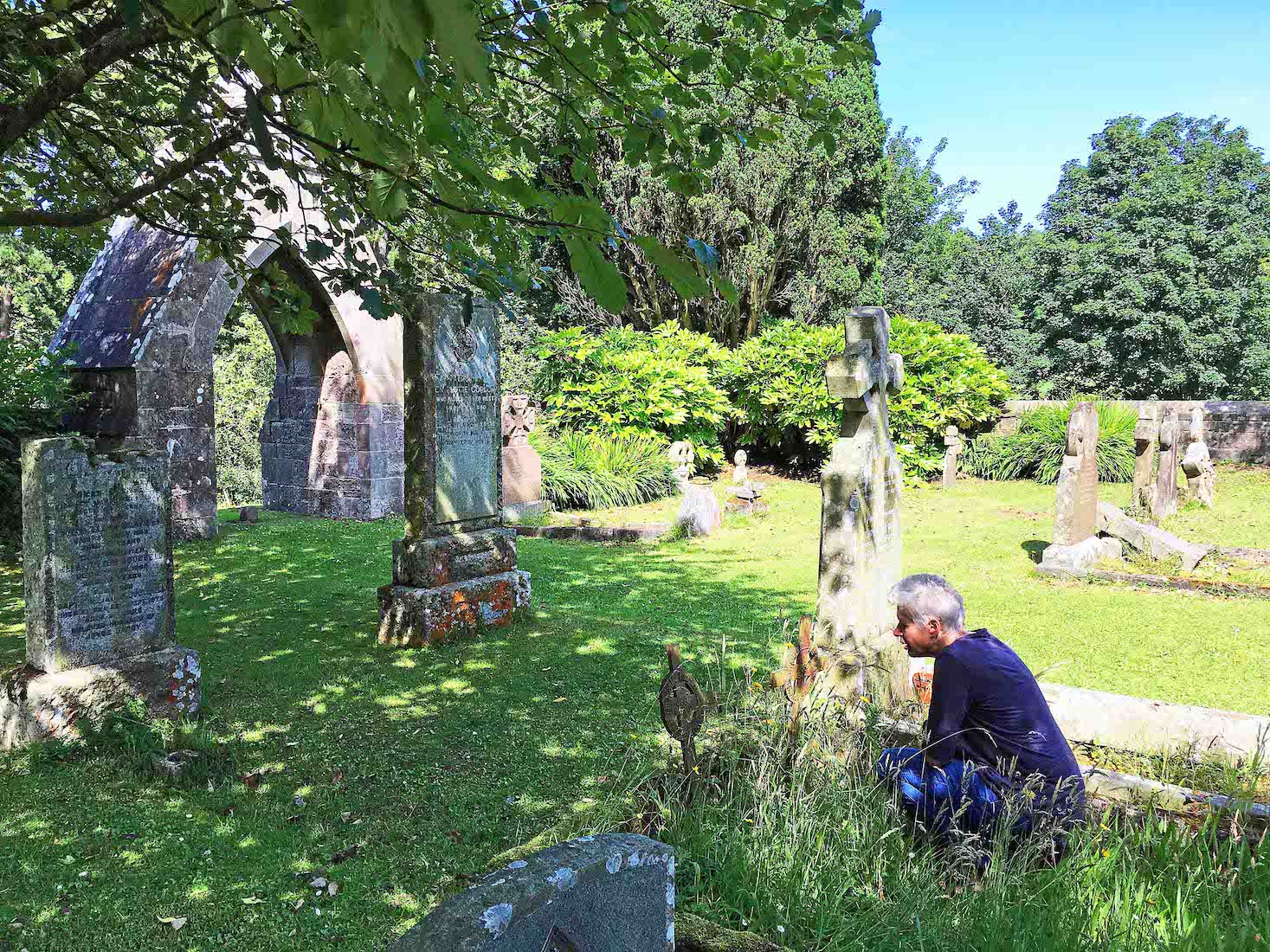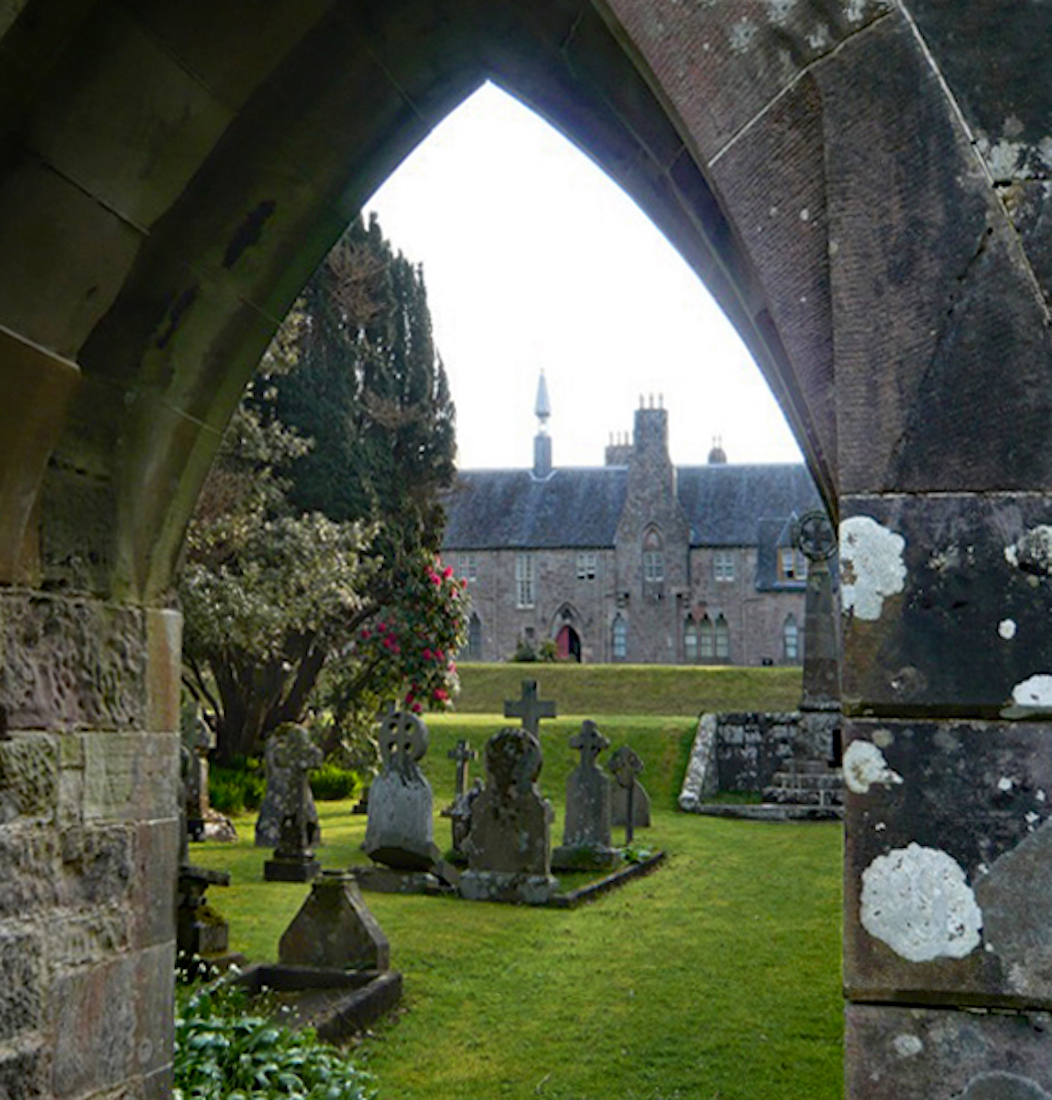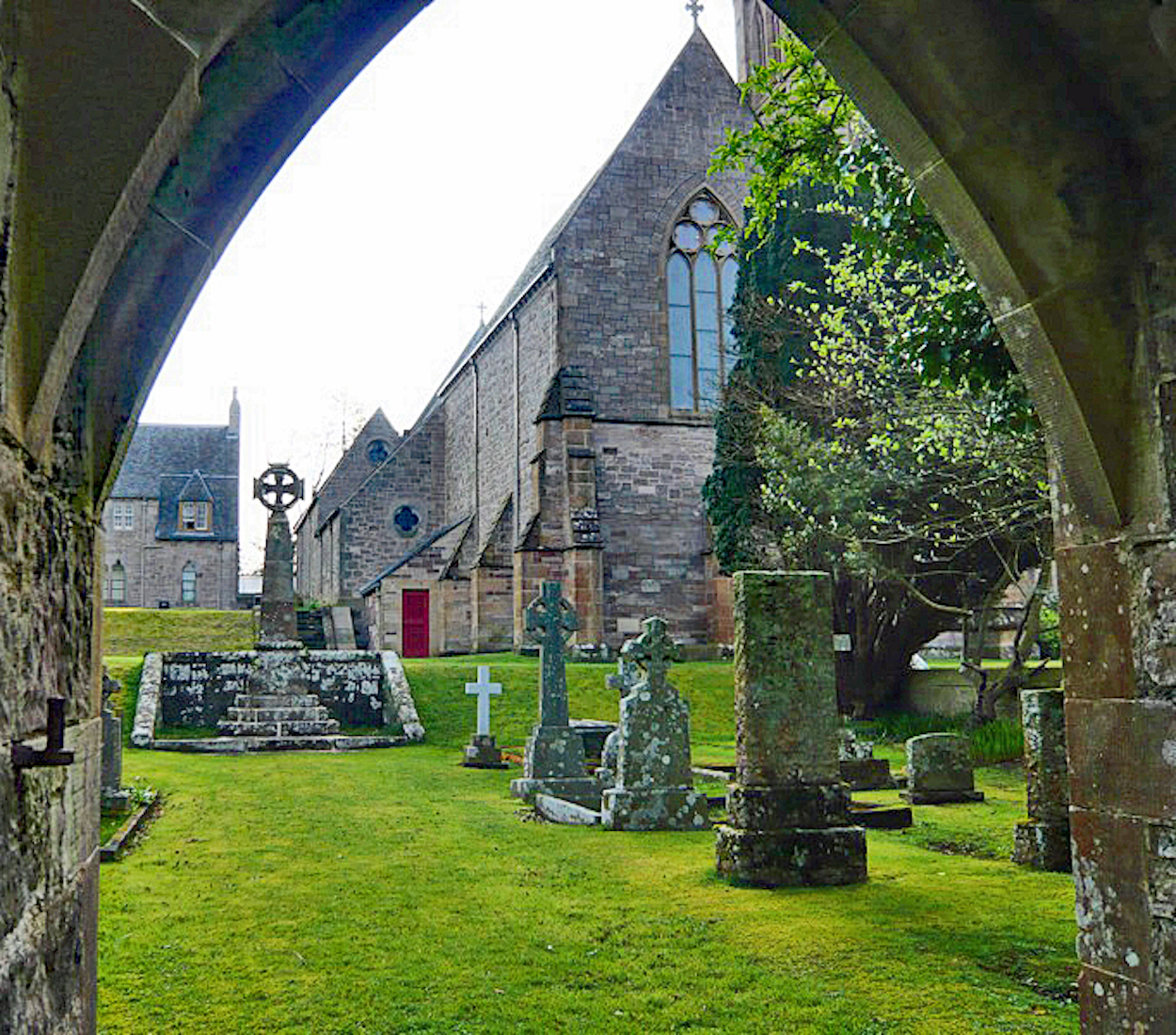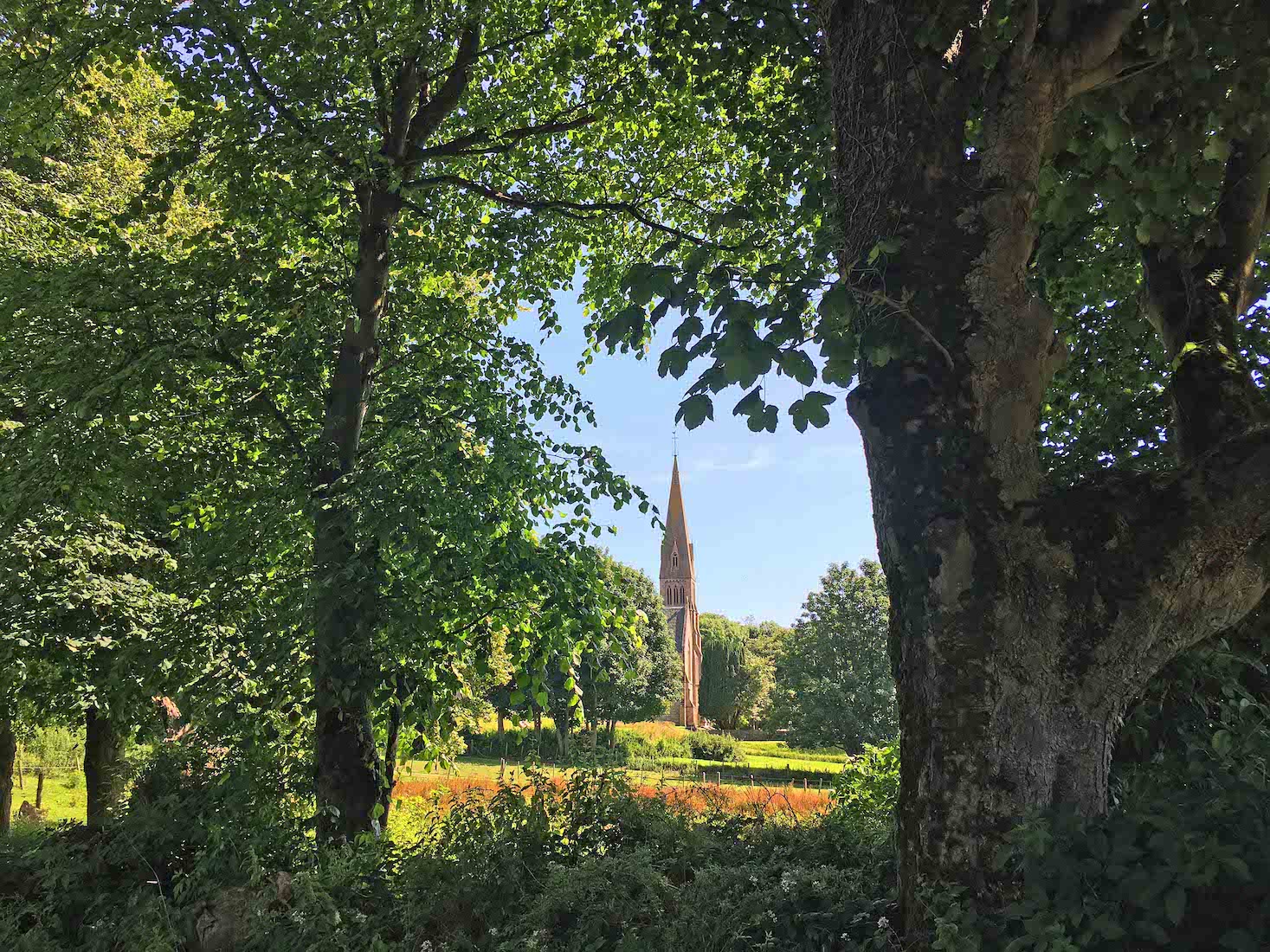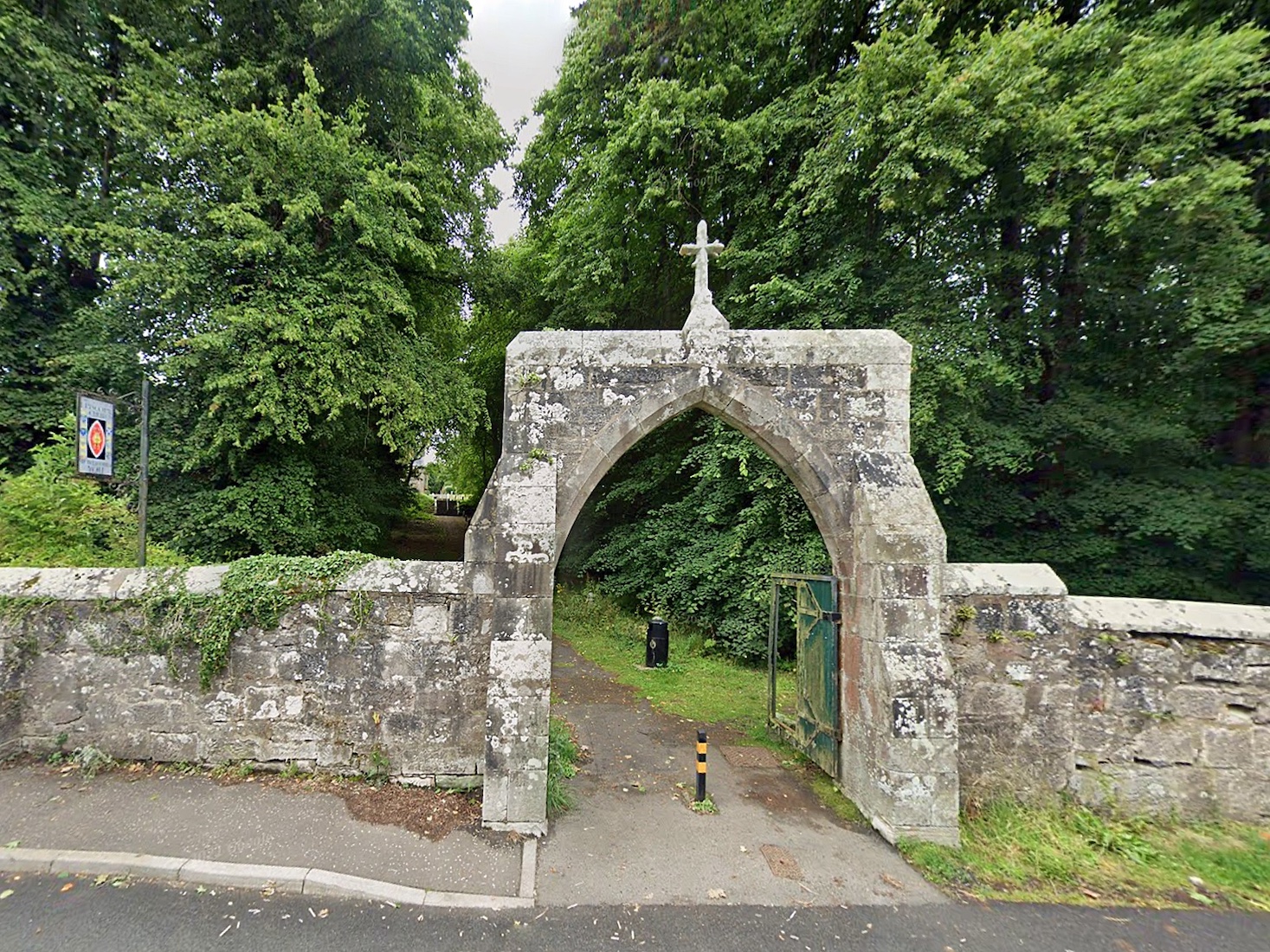
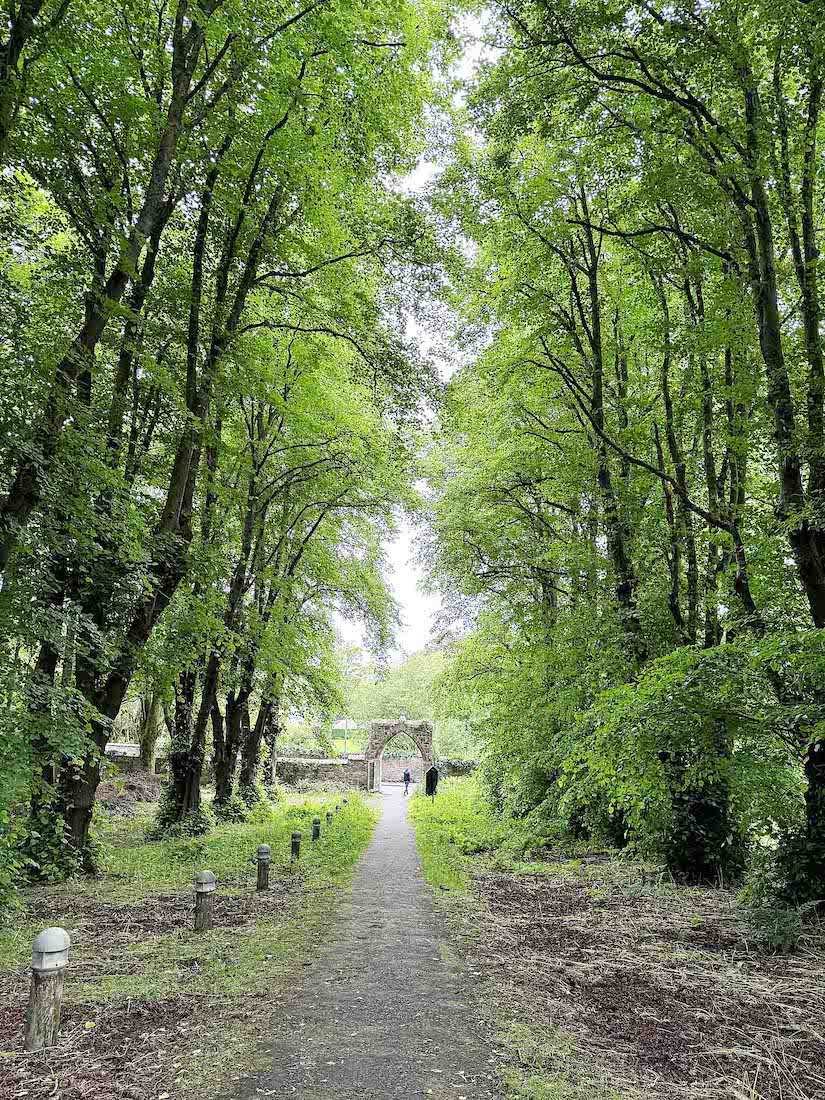
As we walk up College Street from the Millpoint waterfront, there is a high stone wall to our right with dense foliage behind. Just before Bute Terrace appears on our left, we come to an arch in the wall leading to an uphill rustic track which we follow. The track is a delight from either end! INDEX
2. FIRST VIEW
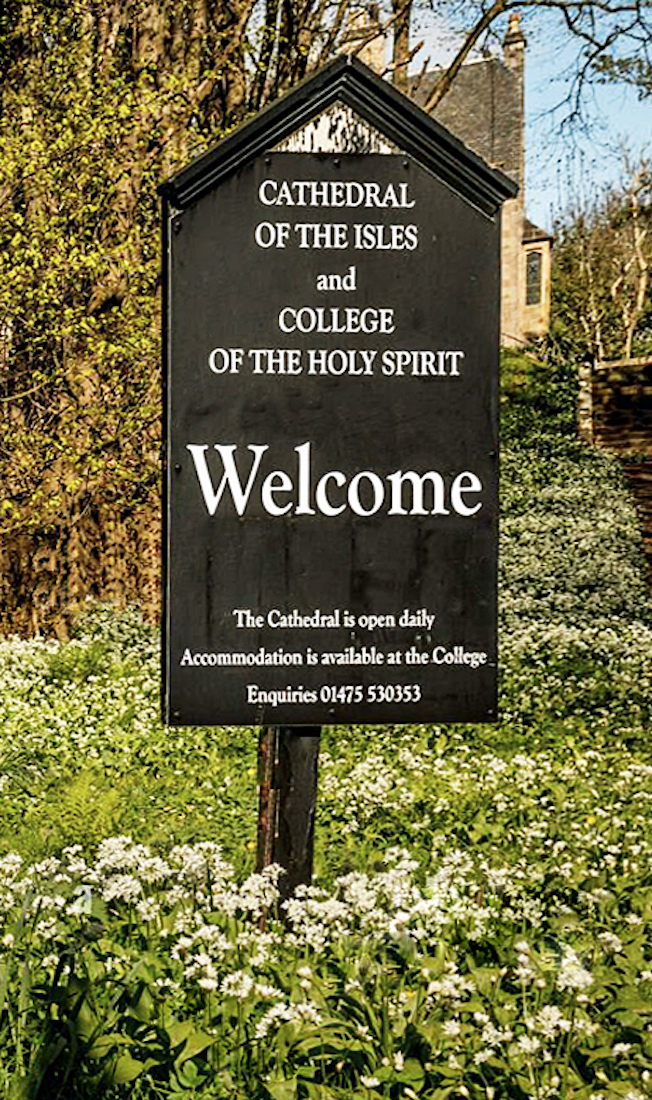
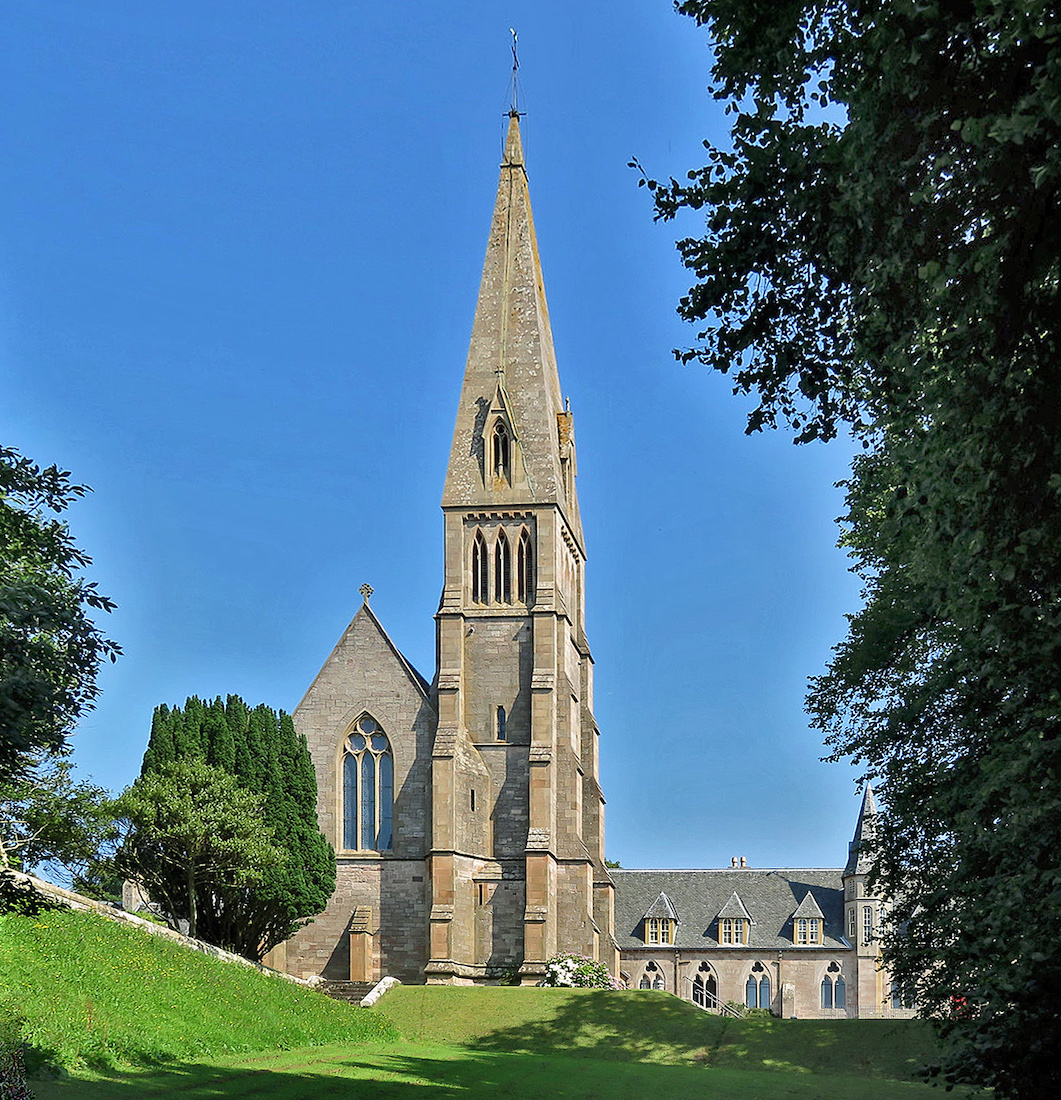
A black signboard on our left tells us that we are arriving at the right place, and soon we find the Cathedral in front of us. The Cathedral is set on a small rise, and the tower and spire rise up gracefully before us – all the way up to 123 feet (37 metres).
3. CATHEDRAL GARDEN
Standing back a little we can view the Cathedral with one of its wild gardens in the foreground. The tower contains eight bells, although this was not always the case. In 1995, the existing three bells were sent to Whitechapel Foundry, London (now sadly closed) to be recast and re-tuned. In addition a further five bells were cast. All eight bells returned to the Cathedral and were re-hung and set up to be played using the Ellacombe method. Unlike the traditional method, this allows for one bell ringer only.
4. SOUTH CATHEDRAL AND COLLEGE
We see here the South side of the Cathedral, and the West side of the adjacent South College. The Cathedral was used as a Theological College from 1851 to 1885, then from 1919 to 1927 the College Buildings housed Nuns from the Community of St Andrew of Scotland. Today, the Cathedral serves as the local Church, and the College buildings are used for conferences, retreats, and by tourists as B&B accommodation.
5. SOUTHEAST VIEW
As is our custom, we begin our exploration by walking right around the outside of the complex. This involves some climbing! From our vantage point on the croquet lawn we look back to the tower, and the south end of the South College. What a pretty place this is!
6. SOUTH COLLEGE CLOISTERS
The South College is attractive with its tall chimneys and dormer windows, but our attention is drawn to the cloister running along in front.
7. SOUTH COLLEGE AND CLOISTER
We hear that there are tea rooms in the cloister: obviously a good place to explore!
9. CLOISTERS FROM WITHIN
And inside there is a wonderful timber roofline, warm places to sit, and some local decoration. The stone used in building the Cathedral and Colleges was mined on site. A set of Stations of the Cross along with various other items of interest line the cloister wall.
10. EASTERN GABLES AND LADY CHAPEL DOOR
Continuing past the cloisters we come to a set of gabled ends: from left the South College common room, the West nave, and the Lady Chapel. There is a door to the Lady Chapel just below the West nave window. We notice that the Lady Chapel has no windows on the South side.
11. LADY CHAPEL AND NORTH COLLEGE
The North College is built of the same pleasant coloured stone, and is similar in construction to the South College, although here the dormer windows have been replaced by high windows in the Eastern wall.
12. NORTH COLLEGE FROM THE WEST
These Colleges look to be a very nice place to stay! We see that the Lady Chapel has no windows on the North side either. The slit window shown at right in fact belongs to a smaller ante-room.
13. NORTH COLLEGE AND LADY CHAPEL
The North College building is close to the Lady Chapel, but quite separate.
14. LABYRINTH
Near the Northeast corner of the Cathedral is a grassy labyrinth. You follow the winding path from the outside to the centre, and use it as an aid to meditation.
15. NORTH WALL
The shaded North wall of the Cathedral. Of interest here is the central section with its two slit windows. This is the anteroom to the Lady Chapel. From here we can also see the top boundary of the graveyard.
16. GARDEN AND GRAVES
The Cathedral is actually quite small: the smallest in the British Isles. We shall nevertheless find it interesting, but for the time we can enjoy the lovely flower gardens to be found on our travels.
18. EXAMINING A GRAVE
There is a certain fascination about old cemeteries. There is a range of dates for the graves here. Rev Adam James died in 1831; George Howie Hall died in 1987. It is a peaceful resting place.
19. VIEWS THROUGH THE ARCH
If we look back through the arch beyond the graves, we get views of North College and the Cathedral.
20. CHURCH IN THE WILD WOOD
Leaving the graveyard, we walk a little North where there is a maintenance road into the Cathedral and College. From here there are some attractive views of the Cathedral.


